#the same way there is a big difference between a corrupt religious organization or individuals who use religion as an excuse for cruelty
Text
Me through most of Boom: Wow, this is a really solid dramatic episode.
Me when Moffat needlessly sprinkles in anti-faith sentiments without specifying that it’s blind faith in bad things that the Doctor doesn’t like, which makes it come off like the Doctor is just against religion generally:

#doctor who#dw critical#spoilers#dw spoilers#i get it edgelord you don’t care for religion. you don’t have to alienate religious members of the audience.#i at least appreciated that the doctor agreed with splice that gone and dead are different things and told her to keep the faith#but like. he immediately thereafter still tells mundy that he doesn’t like faith and spent the whole episode disparaging it.#which just feels so wrong for a show that’s supposed to be open minded about the beliefs and cultures all across the universe#i hate when writers gratuitously make the doctor take a hard and broad stance on something that he would NOT#reminds me of s8 when twelve suddenly hated all soldiers#as if some of his closest friends haven’t been soldiers? brigadier? benton and yates? sara?#big difference between corrupt military and literally every soldier#the same way there is a big difference between a corrupt religious organization or individuals who use religion as an excuse for cruelty#and like. ALL faith and the idea of having a faith that you live by whatsoever.#just because his comments were aimed at something corrupt doesn’t mean they weren’t WAY too sweeping as if he meant it on the whole#i definitely enjoyed the bulk of the episode but that just felt like it was done in bad faith and made me uncomfortable#and i just read moffat’s comment on the thoughts and prayers thing and UGH#i get why there are circumstances in which that can feel hollow — usually if it’s coming from a corporation that could actually do somethin#but can we not villainize all the normal people who genuinely mean that with love?#people who often CAN’T do anything but say prayers for you?#that IS a legitimate response and a legitimate action#someone can’t physically aid you but cares to take the time to talk to the God of the universe about you and your need and plead for you#don’t tell me that isn’t love or that it’s not really doing anything#sometimes that’s all you CAN do and it’s more than people give it credit for#blatant disregard and willful misunderstanding of faith like this just rub me wrong#it’s painting with a broad brush and it’s close minded#and yes i’m gonna post this. i’m feeling controversial.#my love/aggravation relationship with moffat continues#in the wise words of kira nerys. if you don’t have faith you can’t understand it and if you do then no explanation is necessary.
9 notes
·
View notes
Text
Why do people become Pagan? The top ten reasons

by Michelle Gruben
“Why are you Pagan?” If you were to ask this question of a dozen people, you would probably get a dozen different answers. For Christians (and others who believe in one true God) the revival of polytheism may be confounding. For others, it is hard to understand why a sensible modern person would seem to turn their back on science to worship the gods of old.
Before we get too far along, let's cover some background info. Paganism is defined broadly as non-Abrahamic religion that is Nature-based, polytheistic, or both. Wiccans, for instance, generally worship a creator Goddess and a God who is Her consort. The Wiccan cosmology does not acknowledge the existence of the Christian God (or the concepts of Satan and Hell).
Wicca is the best-known of modern Pagan religions, but there are many sub-groups and branches of Pagan belief and practice. Druidism, neo-Shamanism, Greek/Roman reconstructionism, and Norse Heathenry are just a few. There are also eclectic Pagans who combine elements from various traditions to make their own “flavor” of Paganism. While occult practices (e.g., divination and spellcasting) are common in Paganism, not all Pagans participate in these practices. Conversely, not everyone who is involved in the occult is a Pagan.
Most Pagans are polytheist, meaning they recognize the existence of more than one God. But there is more to Paganism than “the more, the merrier!” Here are some general traits of Pagan religions (keep in mind that not every religion will have them all): Rejection of Judeo-Christian cosmology, observance of seasonal rites, reverence toward Nature, rejection of religious authority and focus on individual experiences, paranormal/psychic beliefs and practices, emphasis on personal responsibility over sin or evil.
Not surprisingly, a preference for one or more of these traits is what attracts many people to Pagan religions—but we’ll get to that in a moment.
At the risk of stating the obvious, religion is a choice. If a person follows a Pagan religion, they are expressing a preference for Paganism over another religion, or no religion. Thinking about the reasons why people choose to become Pagan can lead to better understanding of Pagan friends and family. If you are Pagan, you may even learn something about yourself!
For the record, I’m Pagan in a mixed-religion household. This (totally unscientific) list is based on my own observations within the Pagan community. I’ve tried to present them in a way that’s inclusive and fair. Without further ado, here are some of the most common reasons why people choose to follow a Pagan religion:
1. They were raised Pagan.

Contemporary Pagan groups began forming in the 1930s, and achieved breakthrough status with the emergence of Wicca in the 1950s. Before that time, very few people in the West were raised Pagan. If you wanted to be initiated in a Pagan tradition, you had to seek one out—often at great expense to your personal or professional reputation.
Nowadays, that’s not the case. Neo-Paganism as a social/demographic phenomenon is in its third generation. It’s fairly common to find adults who were raised Pagan, or even whose parents were raised Pagan! It’s also possible to find those who were raised Pagan, but left Paganism. “Mom used to go out in the woods with her friends and do weird stuff—I never really got into it.”)
Some Pagan clergy will participate in the general blessing of infants and children, such as the ritual of “Wiccaning.” However, most Pagan paths do not have formal initiation for children. Pagans also overwhelmingly value religious choice. If someone continues their Pagan practice into adulthood, it is likely because they found something meaningful in it.
2. They want sexual acceptance and/or sexual freedom.

Of all the world religions, Paganism is arguably the most tolerant of the varied expression of human sexuality. Sex is considered a divine gift and a sacred rite. Lusty Gods and fertile Goddesses appear in all the major pantheons. (Along with gender-bending, raunchy stories, and other sexy fun.) For most Pagans, sex is just no big deal as long as it’s between consenting adults (or deities).
Pagan groups almost universally accept gay members, and some traditions even have queer or queer-leaning branches (Radical Faeries, Dianic Wicca). Pagan activists have been on the forefront of the struggle for equal rights. Compare that to the sluggish response of churches—even liberal churches—to embrace LGBTQ members and clergy, and you’ll understand why sexual minorities have been so attracted to Paganism. For people who are used to hearing their sexual desires called dirty, sinful, or shameful, the difference can be life-changing.
It’s not just queer folks who embrace Paganism as a safe haven. Horny folks do, too. In most Pagan belief systems, sex is not considered a sin but a morally neutral act. Sex for fun is fun, sex for magick is magick. It’s not how much sex you’re having, but your intention that characterizes the act. The only moral imperative is in how you’re treating yourself and your partners.
Partners? Oh, yes! Polyamory, group sex, and (legal) exhibitionism are accepted within some Pagan communities. That’s an undeniable treat for people who want to enjoy these activities without religious shame.
3. They don’t care for dogma and/or authority.

There is no holy book, no central governing body, and no real priestly authority within the mass of related beliefs filed under Paganism. This is great news for people of a certain temperament—religious rebels and militant agnostics. (“I don’t know, and you don’t either!”)
As a social movement, neo-Paganism is deeply indebted to the Transcendentalist writers of the 19th century. Their poems and essays held the germ of the idea that fuels Pagan practice: That God speaks directly to everyone—often through Nature—and not only to a specially qualified few, inside special buildings.
Some Pagan groups do have ordained clergy. But there are still significant differences between Pagan clergy and those of more established organized religions:
First, Pagan titles like “High Priestess” are usually self-conferred or passed along from student to teacher. This does not mean that they’re not “real” clergy, but it does mean that their power is limited outside their own group or coven. (A Pagan leader may also be ordained as a minister by another organization, such as the Church of All Worlds or the Unitarian Universalist church. This allows them to receive certain legal privileges that independent Pagan clergy usually do not enjoy.)
Secondly, Pagan clergy tend to function more as community leaders than authority figures. Pagan priesthood does not confer any real power over others, either temporal or spiritual. Most Pagan leaders encourage discussion and self-study by their students and congregants. Certainly a dedicated Priest or Priestess will have more experience working with their deities than a beginner. They may have the skills to do rituals or advanced deity work that a novice does not. In a sense, though, every Pagan is their own Priest or Priestess—and the best Pagan clergy respect that. This makes Paganism very attractive to those who don’t want to experience God(s) secondhand.
4. They long for a connection to Nature.

The earth, the trees, the sky, the sea—most world religions recognize these wonders as the work of a mighty creator God. And yet, most leave it at that.
Not so with Paganism. Pagan religions are sometimes described as “Earth-based”—meaning the Earth and its cycles are central to what Pagans hold sacred. Most Pagans profess a deep reverence for natural places, the seasons, the web of plants and animals, and the processes of birth, aging, and dying. While it’s not technically required, many Pagan services are held outdoors. “Skyclad” (nude) rites are another way that Pagans shed the trappings of modern society and get back to the core of being.
Some people come to Paganism as an extension of their environmentalist or eco-feminist views. Others simply want to reconnect with Nature as an antidote to the alienation that comes with busy, digitized lives.
5. They’ve had negative experiences with other religions.

It’s a sad but undeniable fact. People who turn toward one religion are often, with the same movement, turning away from a religion that has hurt them. If you spend enough time in Pagan communities, you will certainly meet some of these displaced folks.
Perhaps a certain religious doctrine—such as the prohibition against homosexuality—is causing the person emotional pain. Maybe they’re frustrated with persecution, corruption, or hypocrisy within the religious group they came from. Or maybe they’re rebelling against the religious beliefs of a parent or spouse. Whatever the case, Paganism appears to offer a chance for a fresh start, one with less restriction and oversight than they may be used to. Pagans don’t evangelize—which may make them seem more trustworthy to folks who have been burned.
As with all life choices, there are right and wrong reasons to become a Pagan. And you can’t ever really know someone else’s motives. The best thing that Pagans can do is treat religious refugees kindly, answer their questions honestly, and wait for them to figure out if Paganism is right for them.
6. They have trouble with the concepts of sin and evil.

Of all the barriers between Pagan beliefs and Abrahamic religion, the idea of sin is the thorniest. Original sin is a tough doctrine to swallow, even for many Christians. Who wants to suffer for something that happened before they were born? That Paganism has no equivalent concept to sin and sinfulness is one of its biggest selling points, so to speak. (Pagan beliefs about the origin/existence of evil are so diverse I won’t even try to tackle the topic here.)
As mentioned earlier, there’s no single Pagan concept of God. Still, one idea you see over and over in Paganism is the doctrine of non-dual immanence. God/Goddess existing here and now, and not in some distant place or kingdom to come. Lack of meditation or participation or acceptance can distance us from the sacred, but God/Goddess is always there. Furthermore, divinity is present within the material world, and the world is inseparable from its creator.
All of this is pretty difficult to reconcile with Judeo-Christian ideas about original sin and the fall of man. (Some Hermetic Pagans do accept them as metaphorical/alchemical truths—but that’s a whole other beaker of worms.) In Biblical cosmology, the world is created by God, but separate from God. The world we know is basically fallen and can only be redeemed through God’s intervention. In Paganism, the world we know is basically holy and does not require redemption. (Only observation and celebration, if we want to be happy and—perhaps—please the Gods.) The other worlds are holy, too—not more, nor less.
As for behavior? Paganism emphasizes individual freedom and responsibility over moral absolutism. Most Pagans live by an individual moral/ethical code, but shun universal behavioral codes. Pagan ethics have been heavily influenced by the Wiccan Rede: “An it harm none, do what ye will.” This in turn derives from Aleister Crowley’s “Do what thou wilt shall be the whole of the Law”—possibly the most mis-interpreted eleven words of all time.
It’s not that Pagans believe that you can or should do whatever you want. On the contrary, Paganism teaches that actions (and even thoughts) reverberate through the universe to affect oneself and others. There’s no real concept of sin, but Paganism is not amoral. In encouraging moral behavior, Paganism substitutes concepts like karma, duty, interconnectedness, for a paternal god figure keeping score.
7. They yearn for representations of the Divine Feminine.

Dion Fortune wrote “A religion without a Goddess is halfway to atheism.” Women’s bodies are the carriers of life. And yet, many world religions downplay or denigrate the contribution of women. In Abrahamic religions, women can be vessels and saints, but are rarely prophets and never God. Many people yearn for distant time—real or imagined—when women’s bodies could also be a representation of deity.
As a social phenomenon, the rise of Wicca and Goddess spirituality has coincided pretty neatly with the expansion of women’s rights. As long as women are to be regarded as equal to men in society, there are those who feel that patriarchal religions can never be wholly legitimate.
Everyone has an earthly mother and a father. If you believe in God, it makes a kind of intuitive sense that everyone has a divine Mother and Father, too. Yet religions that include a Goddess are usually labeled polytheist and Pagan automatically.
8. They want explanations for psychic and paranormal events.

Out-of-body experiences, premonitions, telepathy, ghost encounters—weird stuff sometimes happens. If you haven’t had an inexplicable experience, then you likely know someone who has. Pagans aren’t alone in experiencing the paranormal, of course. But they tend to be better equipped to talk about it than the average person.
Imagine a person who has recurring paranormal experiences, or experiences they believe to be paranormal. Mainstream science tells them that these experiences are illusory. Mainstream religion—when it’s not condemning them as evil—seems mostly too embarrassed to talk about occult happenings. It’s no surprise that the person would be drawn to a Pagan community where psychic stuff is openly discussed, accepted, and even encouraged.
Don’t get me wrong—mental illness and paranormal delusions do occur, and can cause great harm. But the not-crazy among us still yearn for a safe haven to discuss our psychic lives without condemnation. I believe—though I can’t prove—that so-called paranormal experiences are actually quite common among the general population. I’ve also observed that persistent psychic curiosity is one of the major reasons that people turn to Paganism.
9. They’re attracted to the power and control offered by magick.

I once read an academic paper that was trying to explain the rise of Wicca and witchcraft among teenage girls. The conclusion was that when a young women lacks a sense of control in her life—i.e., economic, sexual, or social autonomy—a religion that offers a secret source of power is immensely attractive. (Who wouldn’t want to be able to cast a love spell on a crush, or curse a bully?) The author observed that many teen girls become practicing Pagans in junior high and high school. They tend to lose interest after finding another source of personal power (a job, a relationship, a better group of friends).
As a young Pagan woman, I found the tone of this particular paper to be condescending, bordering on insulting. But one thing is obviously true: Occultism purports to offer power to the powerless, esoteric means to an end when exoteric means have come up short. Why else would there be so many people interested in fast answers—love spells, get-rich-quick spells, and the like?
Lots of people approach witchcraft and/or Paganism because they want to learn to use magick. They see it as a way to fix their lives in a hurry or achieve undeserved success. Many of them move along when they realize that real magick is real work.
10. They’ve been called by a God or Goddess.
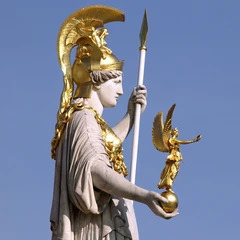
A burning bush, a deathbed vision of Christ, a miracle from the Virgin Mary—these are the types of religious experiences that are familiar to most people. But Pagans have religious epiphanies, too. Although most of us don’t talk about it outside of trusted circles, our Gods and Goddesses call to us in dramatic and in subtle ways.
Like any other type of religious conversion, some people drift gradually toward an acceptance of Paganism, while others are thrust toward it by a single epiphany. Some people may scoff at the idea of elder Gods asserting their presence in the 21st century. But it's certainly no wackier than what other religious people believe. (And it's hard to be so cavalier when Odin’s keeping you awake at night with a to-do list.)
For most Pagans, one or more of the above reasons has contributed to their finding their religious path. There are certainly other reasons that aren’t on this list. Of course, the best way to find out why a particular person is Pagan is to (respectfully) ask!
https://www.groveandgrotto.com/blogs/articles/why-do-people-become-pagan-top-ten-reasons
14 notes
·
View notes
Text
I’ve Never Seen David Lynch and George Lucas in the Same Room at the Same Time…

The thematic parallels between David Lynch and George Lucas are something I keep coming back to again and again, but their careers and evolution have a lot of overlap too. They were born in the earliest Boomer cohort (George Lucas in May 1944, David Lynch January 1946) and had experiences growing up that were colored by the idyllic 1950s, but shifted into a distrust of authority structures that was common for many of their age cohort in the 1960s. They both came of age wanting to do something physical with her hands that felt creative to them in large grimy spaces - fixing cars for Lucas, and painting and installations with a fascination with organic materials, industrial metal, and rot for Lynch. They both fell into film because they were looking for something that satisfied their artistic bent (although film was never a primary aspect of her life to that point). They wound up making a handful of short films over a 3 year period, culminating in a longer short-film that would eventually get them noticed at roughly the same age (Electric Labyrinth THX 1138 4EB [1967] and the Grandmother [1970] for Lynch).
These films netted both of them a patron (Francis Ford Coppola for Lucas, the American Film Institute for Lynch) and started filming their first feature-length film two years after those films. They both got their biggest name recognition bump by films released in 1977 and pulled away from the power of the studio system in roughly 1984. Famously, Lucas offered Lynch a chance to direct what would become Return of the Jedi in about 1981 ( I prefer the story where Lucas does this by picking him up in a Lamborghini - I’ve heard a phone call version too, but it’s not as perfect) and Lynch answered something like “it’s your movie George, you direct it.” They both spent the mid 80s in movie jail, and although they took very different paths in general after (I’ve been emphasizing the similarities) there are still things that jibe in the history - they both reminded people of what they liked about them with a late 80s movie, spent a lot of the 90s on TV projects, did one project around classic radio, returned to theatrical notice around the millennium, all the while generally keeping their own council and disappointing a lot of fans.
There’s obviously a world of difference. Lucas is a left brained technologist who equated freedom with an owning of the means of production. Lynch is it right brained impressionist seeing freedom-as no one ever being able to tell you what to do, acting as a solo artist with collaborators who merge with his sensibilities. Lynch is a production lone wolf, depending mostly on people believing in him and funding him, and losing out in the popular consciousness by making uncompromising art that may not be what the audience wants, meaning funding is sometimes hard to come by. Lucas is like the Democratic party controlling the Congress and presidency - having total power but unable to turn that into what he really wants to make, somehow. The idea of Lynch selling his body of work to Disney is absurd.
But the correspondences in this are telling and help to explain the thematic similarities and divergences. Plus, the differences often relate to the similarities - Lucas identifies with corrupted controlling paternalistic power as a horror of inevitable capture of the individual by larger structures, while Lynch sees the corrupted masculine influence as an archetype, the call coming from inside the house, agency coopted by a collective taint in the universal pattern . But on some level these are the same thing - what is this person I am capable of becoming seeing as I am in control but yet not, doing horrific things? Lucas’ constant commentary on slavery is about hegemony and a systemic oppression he is complicit in, while Lynch has whole pantheons of beings that turn people into vessels that oblate the self and make them act on subconscious programming. Neither probably think the word neoliberalism too much but tend to communicate similar things about it is almost diametrically opposed ways.
The thematic similarities are rooted in a few areas that unpack in to a variety of subspaces which overlap – patriarchal structures as psychoanalytic dynamics (more Freudian father fixation for Lucas, Jung for Lynch), boomer generational failure as socio-first-but-economics-ultimately, the artist as in struggle with larger forces (largely of the self), and an eastern religious metaphysics that is American Christian in flavor. The major line of difference running through this is gender/sex/desire, Lynch being on main with a lot of spiritual overtones of sin, guilt, and “the fall” and Lucas finding this kind of guilt and sin as a secondary phenomenon that is mostly actively suppressed and unconvincing when it shows up; yet both wind up often finding physical consummation at direct odds with art in a gendered creation way (that also links Eraserhead to Age of Ultron and the original Frankenstein). Try doing a psychosexual reading of Howard the Duck sometime.
Lucas’ developmental through line is this: dude in love with 50’s culture but informed by 60s counterculture makes a movie where the young granola-ish revolutionaries win against the fascists in an effort to rewrite society but, having secured rights for “independent spirit” reasons now finds himself in control of something huge and immediately starts making art about boomer men becoming their controlling fathers and then moves on to movies where powerless freaks are the real focus. After a creatively fallow period, he comes back to make a sequel/prequel trilogy that is one of the most misunderstood complicated statements about people becoming what they hate as an eternal cycle at the level of the personal, the societal, the political, the spiritual, the artistic, you name it!
Lynch’s developmental through line is this: dude in love with 50’s culture but informed by 60s outsider/art counterculture makes a movie where the young artist struggles with the idea of a regular life, initiated by fatherhood, which attempts to destroy the artistic spark, after which he enters the Hollywood system and makes an artist as freak movie and a movie about plucky rebels conquering space authoritarianism (that the future of is books about that ending in messianic authoritarianism) and then disavows that system. He then proceeds to make art about subject and object as a supremely gendered thing, in a land that has fallen from grace, moving inexorably towards the idea of eternal cycle at the level of the personal, the societal, the political, the spiritual, you name it!
They both have an idea of the father-artist identified with the abject oppressed, under siege as figure, resentful from being kept from creation, over a career realizing that their “self” is the horrific villain of their own story. For Lynch, this is psychosexual, then spiritual, with a resisted toxic masculine urge to control and overwhelm, often in a violent way. It is the artist’s own urges that get in the way of making art, of desiring in the universe that has an unbalanced power structure from some far off echoes of an original symmetry breaking inherent to the archetypal gender dynamic. For Lucas, it is the realization that the artist in control has a tendency to become the controlling dad and sexual relations are inherently problematic in a political and spiritual way. Real art seems impossible if the artist has control, identifying with the downtrodden is a bit of a lie, happy endings can’t happen not because of the happiness bit because of the ending bit. For both, there is a fundamental flaw in the cycle, which is patriarchal in nature, but Lynch just approaches this much hornier.
The boomer part probably requires the most discussion, but the TLDR is that they are both are crawling out, through Vietnam, from the 50s social order, and grappling with how badly the 60s idealism failed. Lucas does this in the prequels as a big canvas critique of how the social revolution was co-opted by the generation not being able to see its own flaws, of not seeing the system taking over again, an Empire calling itself a Republic. An inability to look in the mirror and really see. The wisest oldest hippie is the only one who sees what’s happening, but is powerless as his apprentices are inevitably spit out, and the next generation has to be raised not by a skeptic but a true believer in “liberal” “democracy” (cynic quotes theirs).
Lynch is interesting here in that he most directly addresses this only in Twin Peaks, but we see more naked reflections, divorced of contemporary politics, in his other works. In Twin Peaks, Ben Horn is the Palpatine figure, who winds up a sweet old man buying off the harm his life’s work and progeny have produced while ignoring the poor and next generation personally. Jacoby the neutered, fried Yoda that eventually slides into Alex Jones territory (the canonical Boomer ethos in a nutshell – “what me” neoliberalism and change the world ideology going crackpot). All of Twin Peaks except for Fire Walk with Me is directly socioeconomically generational (Bobby Briggs becomes a young Republican in season 2, the mill, the trailer park), but the other works are full of class issues informed by Lynch’s age. From Blue Velvet’s suburban kid exploring his darker side by going to the poor part of town through a career of classist low-life encoding (Bob is a denim jacket wearing homeless person, all the covered in grime by the dumpster/trailer park characters, Ronette as the factory floor version of Laura, etc), culminating in Inland Empire and Twin Peaks the Return chronicling the fall of man as partially an (generationally specific in TP) economic fall into a unequal class defined world of needing an opening and leaving the house to labor as where evil is born. TP OS is about how boomers turned out just as bad, the Return is about how we inhabit the world of their ideological blindness.
All filmmakers seem to, at least to a certain degree, bring the question of creation of art directly into their work via distant or close metaphor. In Eraserhead and Elephant Man, Lynch values the spark of art which the downtrodden protagonist is trying not to lose. In Dune, the visionary with a big project that seeks to upend the system (but that we know eventually become something even worse) is a project that fell apart due to studio interference. Blue velvet is about the act of watching awakening something uncomfortable in us that is incompatible with normie life (it wouldn’t be weird to say it was about porn). Twin Peaks is about television, FWWM about movies, and all at least partially about closure being a death act in art. Lost Highway is about the artist tortured by desire, Mulholland Drive about desire being central to be eaten alive by the Hollywood system. Inland Empire is about filmmaking as a way into understanding the world on a deeper level (as is its unofficial sequel Inception) to cure its ills. All of this is art’s struggle against power, with an element of the major powers being subconscious forces that control us leading to desires that ablate the artistic impulse.
Lucas' projects have over time been about a young upstart independent filmmaker, losing his soul by becoming successful, and becoming the system, man. He then tries desperately to identify as really not the one in charge, until he admits to what he has become. He consistently dips back into filmmaking as an adventure or a good fight, but he has to set these in a time period before his birth. As in Lynch, having a child is equated with not being able to fulfill the kind of artistic destiny, but Lucas goes further in equating it to an excuse for why the powerful artist goes bad and needs redemption. He had a naïve or-is-it canny motif focused on the short inhuman outsider, often related to music or primitive settings (often with wooden cages) as a recurring thing for a while. These characters are often wise, or at least no filter tell-it, and are similar to the Elephant Man. This is a trope, sure, the wise different wavelength other, but there is also an identification of the artist at knowing and right yet impotent and a clue to the author’s metaphysical system.
Lynch is the mainline protestant in upbringing and very much influenced by a kind of proto-eastern religion (you can just say the Vedas for shorthand). Lucas is not very religious, but was brought up Christian, influenced by Christian symbolism and became interested in world religion as narrative via figures like Joseph Campbell. Hence, they both gravitate towards some kind of Gnostic Proto Christian, So-Cal zen, Thomas Aquinas “gets” Plato kind of amalgam, which informs their work. Lynch has veered towards an eternal cycle framework, and the very physics compatible idea of something in the past breaking and causing consciousness/suffering, through which we can achieve joy as a counter only through letting go of the self, and the recurrence of ruptures on all scales demonstrating a fractal pattern of hurt and redemption. Lucas also sees a big cycle, but it is one more of human existence as narrative that has a tendency to return, with a little bit of Nietzsche and movie eastern spirituality thrown in. Both believe in a recurring pattern that plays itself out in a way that is terrible, but hopeful, as the struggle is where hope derives from. Both have inherently Christian ideas and symbols in their work but lean back on non-Christian ideas that the Christian ideas have a history with. Lynch has his virgin Mary as the real Christ figure female angels that show up, while Lucas has turnt space Jesus.
Suffice it to say that the tree trial scene in the Empire Strikes Back and the lodge sequences in Twin Peaks are a very good place to start looking for how the two auteurs meet. Compare Anakin/Luke Skywalker to Mr C, look at the 90s turn they both made, register their seeing the “sleeper must awaken” of fiction being terribly fraught, compare the force vs. the universal field, the way their relationship status and partners carve their work into eras, and their continued existence as mainstream experimental filmmakers.
26 notes
·
View notes
Text
Empathy, pt.3
Let’s start with this: Jamal Kashshoggi was a man.
Do you remember him? He was a man, a human being, and like any of us he had hopes and dreams and memories.
He was also a journalist. After years of supporting the Saudi royal family and their authoritarian regime, he was murdered in 2018 for writing and speaking out against their abuses and, eventually, their war in Yemen. That was the version of him who fled Saudi Arabia, and the one who was marked for death by the Saudi crown prince he had once called a friend.
Last fall, the Saudi regime commuted the death sentences of the men it offered up as his murderers. Three months ago, an investigation confirmed that it was the Saudi Crown Prince, Mohammed bin Salman, who had ordered his death.
We’re forgetting him. Even now, reading this, we are already forgetting. We can’t help it. At least, we tell ourselves we can’t.
In many ways, Kashshoggi was a lot like Alexei Novalny. Novalny hasn’t left the news quite yet. Like Kashshoggi, he supported the corrupt, authoritarian regime in his country, Russia, before turning against it. The attempt on his life, by poison, failed. Barely. He’s still alive, locked up in a Russian prison, a cautionary tale for those daring to oppose Vladimir Putin.
How long before we’ve forgotten him, too?
It’s a lot to ask of ourselves, remembering everyone around us. Sure, in some abstract way most of us try, “Good will towards men,” and all that, but we have the luxury of looking away and of not having to commit ourselves to thinking of others the way those two men did.
For each of them, it was an inescapable empathy for the suffering of they saw around them that compelled them to risk their lives to draw attention to it. They did so knowing the cost.
That cost - personal loss, imprisonment, death - is enough to keep most of us looking away. So much of what we do is to enable us to look away, to keep unpleasant reality at a distance. When others are already physically far away, it only makes it that much harder for us to do the right thing.
Looking out past our borders, the world today is filled with men, women, and children suffering, more than a few at the hands of authoritarian regimes, and of them far too many paying that cost for standing up against abuse.
The most present case this past week, because videos on social media have made it impossible to ignore in ways that it has been, has been that of the Palestinians.
The facts of this latest series of abuses against them should not be in doubt. During the last days of Ramadan, Israelis began forcing Palestinians out of their homes in the Sheikh Jarrah district in East Jerusalem. This was followed in quick succession by Israeli troops occupying the Al-Aqsa mosque following a confrontation between Palestinians at the mosque for Friday prayers and Israelis celebrating the capture of the mosque in 1967.
This was all a deliberate provocation, beyond the aggressive offense of what the Israelis were doing. The timing of it, during the Muslim holy month while right wing Benjamin Netanyahu struggles to cling to power, was intended to add insult to injury.
It worked. Clearly.
Hamas, ever eager for an excuse to be violent and to be seen to be violent, gave an ultimatum that would make Netanyahu’s regime look weak if accepted, Netanyahu gratefully rejected it, and Hamas began firing rockets, knowing that Israel would escalate and retaliate with a kind of brutality that can only be described as criminal.
The unpleasant reality is that both political powers rely on perpetuating the conflict between them, doing so at the expense of the people they claim to want to serve and protect. And those people pay the cost of it.
Note, please, how I have avoided referring to those instigating these atrocities as Muslims or Jews. That they use their religions and their histories as justification for violence and abuse should not be taken as representative of either religion. If anything, it should be taken as a kind of cruel irony, or perhaps an insight into how the abused, as individuals or groups, can become abusers themselves.
Zionism is not Judaism. It never was and never will be. It grew out of two things: the technology-driven late 19th century belief by Europeans, and their North American “cousins”, in their right to colonial domination of non-Europeans; and the centuries-old, routine and systematic attacks on Jews - pogroms - especially in Central and Eastern Europe that led millions of Jews to flee for their lives, many of them to the United States.
The establishment of Israel in 1948 followed the same pattern: that same, late 19th century belief in the right to claim or assign ownership of others’ land - no matter that it had once belonged to your ancestors; and the routine and systematic attempted genocide of all Jews in Europe - the Holocaust - by Europeans who chose to believe Jews not to be Europeans but some other, lesser race from West Asia.
That, of course, has been the assigned role for Jews the world over: they are accepted as insiders when times are good and scapegoated as outsiders when times are bad. To be Jewish - I am - is to understand that this never quite goes away. There’s always somebody having a bad day, always a big lie ready for justification.
Technically, it is true that Jews are Asian, in the way that Palestinians are also Asian, and that Egyptians are, too, but also African because different people have had different maps which they used for different purposes at different times.
Also true is that these things are only true due to the arbitrary drawing of continental lines on maps made by Europeans, from the ancient Greeks to those carving up the “New World” in the century after Columbus to the 1885 conference in Berlin carving up Africa for colonial exploitation.
This is not, strictly speaking, a European thing. Every culture has a tendency to see themselves as the center of the world. Just ask those living in China, or as they call it, Zhongguo, the “Middle Kingdom”.
The difference here is that modern day Israel was carved out of Palestine, a colonial “protectorate” which was itself carved out of the Ottoman Empire and awarded to the British following World War I. As a spoil of war, formerly-Ottoman Iraq, with its vast oil reserves, had greater value to the British. Palestine had ports on the Mediterranean - “the center of the world” - but was otherwise an afterthought.
Not, however, to the Jews fleeing Nazi Germany. We must remember that the rest of the world didn’t want them. Jews attempting to flee the atrocity they and everyone else couldn’t help but see coming were turned away by everyone else, including the United States.
This in no way justifies what was done in Palestine in the 1930s and 40s, it’s just to place it in context. By turning Jews away, by attempting to forget them and their suffering, the world gave weight and power to right wing groups within the refugees.
Starting in the 1930s, those groups began to engage in terrorism against Arabs to force their position into Palestine and against the British to force them out. Irgun Zvai Leumi (National Military Organization) and later the Stern Gang carried out assassinations and killed hundreds of Arabs and British with bombs.
After what the Nazis did to the Jews in Europe, memorialized in newsreels for all the world to see, who would take the Arabs’ side? Who could? The British were in no position to hold onto their colonial possessions anywhere, so they gave up and pulled out and in 1948 the state of Israel was born. Palestinian Arabs were forced from their homes and stripped of rights they had held under the Ottomans and even the British.
Again, this was not Judaism. As the name “Irgun” suggests, those terrorists were a right wing, nationalist militia doing what right wing, nationalist militias have done before and since, using an ethnic or religious identity to justify committing atrocities to take land and property.
After standing by and allowing the Nazis to do what they did, the world vowed never to forget; part of the price they were willing to pay - that they were willing to allow the Palestinian Arabs to pay - was to forget what Irgun and the Stern Gang had done, and to turn a blind eye to anything the Israelis did going forward.
There was a racist element to it, to be sure. This is part of the pattern of colonial withdrawal, negotiating a partition of land and possessions among the colonized groups, pitting them against each other, and then letting them fend for themselves. Nothing like creating a power vacuum to draw out the worst of us.
The British did the same thing in South Asia in 1947, pitting Muslim and Hindu groups against each other, erupting in spasms of violence before settling into a Cold War, complete with nuclear weapons. Even in their most secular eras, religious nationalism has defined the politics and leadership of each nation.
The result of this, naturally, has been an increasingly corrupt leadership exploiting religious hatred and mistrust to gain more power and wealth for themselves. It should be noted, yet again, that the political entities of Pakistan and India, though led by religious nationalists, do not represent Islam or Hinduism.
Their actions and failures do not represent those religions in any way. They are the actions and failures of men and women seeking power, seeking to acquire it and seeking to hold onto it. They are no different than the Netanyahu regime or Hamas, or our own right wing leaders in the United States.
For all of them, it is in their interest to cling to memory of conflict as a means of manipulation; in Israel and Palestine, nationalist leaders preach as if 1948 or 1967 are now; in India and Pakistan, it’s still 1947; and for America’s white nationalists, it’s either 1865 or 1965, take your pick. For the Serbs slaughtering thousands of Muslims in Srebrenica twenty-six years ago, it was 1389, the year the Ottomans conquered the Balkans.
The wars, cold or hot, can never end because time is never allowed to change. This, again, is a function of proximity. By freezing themselves in the increasingly distant past, the leaders and those choosing to follow them do not have to accept the changes facing them in the present. Their fantasy is to return to that idyllic, earlier time, when they possessed everything and did not have to be accountable to anyone.
And they will all fail for the same reason: in the present or near future, we will have reached a point at which we can no longer allow ourselves to ignore those suffering and in doing so forget them.
That is what we have done to the Palestinians. What has been done and what is being done now is in no small part because we forget them, routinely and systematically and purposefully.
The videos sent from Gaza of children being pulled from rubble should help us remember. They should. Ideally, they will have the same effect as those of last year’s Black Live Matter protests, but the people of Gaza remain far away. For many of us, it will be enough that the missiles and rockets have stopped.
Videos sent from India’s emergency rooms and crematoria should help us remember, but they, too, remain far away. Already, we’re starting to put India’s crisis behind us.
Will we remember either of them a month from now? Two? Or will they fade into the background, as the imprisoned Hong Kong democracy protesters have, or those dying of Covid-19 in Brazil, or those shot down in the streets fighting police brutality in Columbia, or those caught between warring factions in Ethiopia’s Tigray region? Or, for that matter, those half a century ago in Argentina who were simply “disappeared”?
What about the coup in Myanmar? Remember that? How about the ethnic cleansing of the Muslim Rohingya people, supported by the now-deposed and jailed regime of fallen-hero Aung San Suu Kyi? What was done to them was no different than what was done to the Armenians in what is now eastern Turkey by the Ottoman Empire in 1915. That genocide was recently recognized by President Biden, an act of official, international recognition that took over a century and which itself is already being forgotten. The Rohingya may have to wait as long to be remembered themselves, or longer.
The point of all this isn’t that we forget, try as we might, but that despite it we find ways to remember. That Biden recognized the Armenians came because they did not forget and did not allow that crime to be forgotten.
If this sounds like what nationalists all claim to do themselves - always demanding that everyone remember this date or that insult - remember that actual justice never seems to be their goal.
Justice requires memory, full memory. For us to remember anything fully, we must take the good with the bad. We must recognize the good and bad in each of us and in each group and in each series of actions. We must understand that for the worst act done by anyone in the name of any group or religion, there remain those within those groups and religions who stand against it.
So, let’s end with this: George Floyd
George Floyd was a man, a human being, and like any of us he had hopes and dreams and memories. He died one year ago today in no small part because we forgot him.
We remember now, today especially, because of what was done to him on this date, but we should recognize the role that forgetting him and people like him played in the events that led to his murder. We as a society have looked away from the suffering of minorities in this country, and from the violence done to certain groups within our society.
The easiest thing to say, certainly as we watched that video and the countless videos of police brutalizing non-violent protesters all last summer, was that “all cops are bad”. They aren’t. Hard as it may be to hear, they aren’t.
They are, however, led by men and women who push an adversarial culture, who encourage violence and racism, who are corrupt, and who thrive on the failure of reform. And most of them, far, far too many, stand by in silence as men and women are murdered in that culture’s name. In that silence, they have failed us all.
If we want to change that culture, we need those who would stand for justice to stand up and speak. They are there, just as they are in Israel and Palestine, and in Pakistan and India and elsewhere: intimidated, ostracized, and struggling to be heard.
Of course, May 25th, 2020 wasn’t just any other day in America. It was Memorial Day. That is a cruel irony. Another is how little we do to honor that day. It was created to honor those who died for this country, to remember not only them but what they did and what they supposedly did it for. Instead, we grill meats and drink beer and forget our troubles for just one day.
Few deaths may have the lasting impact on this country that George Floyd’s has had and will have, and he died in no small part because he, too, had been forgotten. This coming Memorial Day, let us take a moment to remember him and all of the others everywhere in this world who have died and deserve to be remembered.
- Daniel Ward
#memorial day#george floyd#memory#proximity#politics#palestine#israel#muslims#jews#hindus#India#Pakistan#colonialism#Great Britain#racism#anti semitism#police brutality#columbia#argentina#the disappeared#bosnia#srebrenica#jamal khashoggi#saudi arabia#yemen#alexei novalny#long reads#long read
3 notes
·
View notes
Text
“A NATION’S STRUGGLE TO MAINTAIN HUMAN RIGHTS”
Gonzaga, Berdin, Caballa
“To deny people their human rights is to challenge their very humanity”. That quote was from Nelson Mandela, one of the most well known leaders in the world. According to an article written by United Nations (n.d), “human rights are rights inherent to all human beings, regardless of race, sex, nationality, ethnicity, language, religion, or any other status”. The article by United Nation (n.d) also states that, “human rights include the right to life and liberty, freedom from slavery and torture, freedom of opinion and expression, the right to work and education, and many more”. But according to an article by Amnesty International (n.d), there is an increase in the human rights violation in the Philippines and that many lives were lost due to this. This unjust violation and numerous others shows that despite being valid for human rights, some people are deprived from this.
The rise of killings started when the bloody war against drugs started and according to Conde (2020), this was worsened during the pandemic wherein it was recorded that there were 103 persons killed even before the crisis. Conde (2020) also mentioned that the police killed 50 percent more people between April and July 2020 than the previous months and that since 2016, Philippine Drug Enforcement Agency (PDEA) has acknowledged to have killed 5,810 but human rights organizations claimed that the real amount may have been threefold. Another article from Amnesty International (2020) states that these killings may have been linked to red tagging or disapproving of someone’s human rights campaign and that journalists and human rights activists are also victims of this. According to the research done by Pernia (2019), there is a connection between populism which is the divide between people & corrupt elite and human rights and that this has been occurring in various parts of the world. Pernia (2019) also mentioned that in this current administration, human rights violations were allowed due to the disregard of liberal democracy in this country. Human rights activists were also affected by this issue which violates the freedom of speech and according to the research done by Howie (2017), “ free speech is a necessary precondition to the enjoyment of other rights, such as the right to vote, free assembly and freedom of association, and is essential to ensure press freedom.”
It is quite ironic to see how despite the fact that we live in a modern time wherein everyone is educated from what is right from wrong, it is quite awful to read news articles that human rights are violated and that the majority of its victims are those who are not in high position and power in this society. The issue regarding human rights can be related to the philosophical topic about freedom. To start off, freedom is the independence of an individual from oppression, other people, an authority or from society itself. This is divided into two namely: negative freedom wherein we are free from any obstacles and other interferences and positive freedom wherein our freedom is governed. The two terms mentioned earlier, human rights and freedom, are connected since human rights give us freedom on some aspects of our lives as humans such as freedom of expression. Due to the ongoing oppression in some countries, including the Philippines, this is a big issue since people who are evil can use this as an excuse to suppress those who are against their authority or will. They can immediately use their power to manipulate and monopolize an entire nation. With this, they can also control everyone through fear and in the process, threaten human rights. As early as now, everyone should educate themselves about their rights as a citizen of their country and as a human. Everyone should also frequently read news about these types of issues because just because it doesn’t affect you doesn’t mean you should educate yourself about it.
All human rights are fundamental, indivisible, interdependent, and interrelated. The Philippines must treat all human rights in a fair and equitable way, on the same basis, and with the same emphasis. While the importance of national and regional particularities and the different historical, cultural and religious contexts must be borne in mind, it is the responsibility of Governments, irrespective of their political, economic and cultural structures, to promote and protect all human rights and the foundations of human rights. Respect for and enforcement of human rights provides the foundation for peaceful and harmonious coexistence between peoples of diverse cultural and religious backgrounds. The diversity of cultures and religions enriches the basic sense of human rights at rational and regional level.
0 notes
Link
Edward Herman, the co-author (with Noam Chomsky) of Manufacturing Consent, has died. He was 92. His work has never been more relevant.
Manufacturing Consent was a kind of bible of media criticism for a generation of dissident thinkers. The book described with great clarity how the system of private commercial media in America cooperates with state power to generate propaganda.
Herman's work was difficult for many to understand because the nature of the American media, then and now, seemed at best to be at an arm's length from, say, the CIA or the State Department. Here is how the book put it:
"It is much more difficult to see a propaganda system at work where the media are private and formal censorship is absent."
The basic thesis of Manufacturing Consent was that propaganda in America is generated through a few key idiosyncrasies of our (mostly private) system.
One is that getting the whole population to buy in to a narrative requires the sustained attention of the greater part of the commercial media, for at least a news cycle or two.
We don't censor the truth in America, mostly. What we do instead is ignore it. If a lone reporter wants to keep banging a drum about something taboo, like contracting corruption in the military, or atrocities abroad, he or she will a) tend not advance in the business, and b) not be picked up by other media.
Therefore the only stories that tended to reach mass audiences were ones in which the basic gist was agreed upon by the editors and news directors of all or most of the major media companies.
In virtually all cases this little mini-oligarchy of media overlords kept the news closely in sync with the official pronouncements of the U.S. government.
The appearance of dissent was permitted in op-ed pages, where Democrats and Republicans "debated" things. But what readers encountered in these places was a highly ritualized, artificially narrow form of argument kept strictly within a range of acceptable opinions.
Herman and Chomsky stressed the concept of worthy and unworthy victims. In Manufacturing Consent, written during the Cold War, the idea was expressed thusly: One Polish priest murdered behind the Iron Curtain earned about a hundred times as much coverage as priests shot in Latin America by American-backed dictatorships.
The Polish priest was the worthy victim, the Latin American priests unworthy.
So Americans learned to be furious about atrocities committed in Soviet client states, but blind to almost exactly similar crimes committed within our own spheres of influence.
The really sad part about the Herman/Chomsky thesis was that it didn't rely upon coercion or violence. Newspapers and TV channels portrayed the world in this America-centric way not because they were forced to. Mostly, they were just intellectually lazy and disinterested in the stated mission of their business, i.e., telling the truth.
In fact, media outlets were simply vehicles for conveying ads, and a consistent and un-troubling view of the political universe was a prerequisite for selling cars, candy bars, detergent, etc. Upset people don't buy stuff. This is why Sunday afternoon broadcasts featured golf tournaments and not police beatings or reports from cancer wards near Superfund sites.
The news business was about making money, and making money back then for big media was easy. So why make a fuss?
As a result, the top executives in news agencies were people who were inclined to take official sources as gospel. An additional feature of the business was that the least skeptical reporters were the ones who were promoted the most quickly. And when they got there, reporters manning the top posts were encouraged to develop an almost religious worship of credentialing.
A person with a title, be it someone from a think tank, a university, or especially a security service organ, was to be trusted unquestioningly. Meanwhile, outside/dissenting voices were given the hardcore "skeptical journalist" treatment.
This is how situations like the Iraq War invasion happened, in defiance of all common sense.
Even though a child could see that the government's stated reason for going into Iraq was both insane and a fiction, virtually everyone in the business jumped into the story with both feet.
Round the clock, TV sets were full of current and former generals and/or talking heads from think tanks boosting the war rationale. Antiwar voices were almost totally excluded.
Within the business, those with doubts hesitated to say so in public. Even at the editorial level, this was so, thanks to fear of backlash.
Herman/Chomsky identified that phenomenon in Manufacturing Consent as "flak" – a policing mechanism whereby reporters and/or media outlets that stepped out of line could expect to be denounced by an entire range of establishment voices.
Those voices were usually the same credentialed "experts" who were accustomed to being worshipped in the normal course of coverage.
Flak worked. It scared advertisers, and what scares advertisers scares editors.
In the case of Iraq, fear of being called unpatriotic, a terrorist-lover or "against the troops" cowed most news directors or editors with even remote doubts. And when that didn't work, networks like MSNBC simply yanked disobedient antiwar voices like Phil Donahue and Jesse Ventura.
Through these parallel operations – the pushing of approved narratives on the one hand and the policing and hiding of forbidden ones on the other – this seemingly unconnected federation of competing media companies and establishment spokesfiends "manufactured" public opinion.
There was no dictum from above, the way it might have happened in a tinpot dictatorship or a superpower oligarchy like the Soviet Union.
Public "consent" for policies like the Iraq invasion was manufactured through a complex series of organic processes, then kept in place via a mix of powerful economic and psychological incentives.
Herman was interested in the phenomenon of how even outright fictions could be sold in a "free" media system.
In his last piece, from this past summer, Herman made a list of some of the whoppers the media has foisted on the public over the years: the depiction of the U.S. not as an invader but as a defender of South Vietnam against "aggression," the notion that the Soviets were behind a papal assassination attempt, the "missile gap" and others.
Herman was a skeptic about the current Russia news, but that isn't why his work is relevant today. You can believe he's dead wrong on Russia and Trump, and Manufacturing Consent would still be far more relevant now than it was when he and Chomsky first wrote it.
The main reasons for this have to do with the structure of the current commercial media. Because of tech companies like Google and Facebook, it is significantly easier to "manufacture" consent today than it was before.
A small handful of monopolistic tech companies like Facebook have life-or-death power over media companies. They can steer traffic wherever they please simply by tweaking their algorithms. Firms that don't themselves create news content wield this monstrous influence.
Controlling how, where and when you got the news was how media companies were paid previously. Since those processes are mostly out of their hands now, news companies no longer control their own economic fates.
They have become vassals to essentially unregulated, monopolistic distribution mechanisms like Facebook, who additionally appropriate the lion's share of the profits that used to fund things like investigative journalism.
Moreover the policing mechanisms are far more powerful now. Herman and Chomsky wrote about flak in the era before social media. Today blowback against dissenting thought is instantaneous and massive.
Individual reporters are far more likely to be freaked out about it because Internet trolls are so personal and can rattle just about anyone. Add the proliferation of fake blowback produced by oppo firms and troll farms and it's not an accident that the overwhelming majority of "legacy media" content stays within the confines of conventional blue or red rhetoric.
The major difference between then and now has to do with which narratives are being pushed. When Manufacturing Consent was written the major problem was that Americans across the entire political spectrum were being sold a range of myths about the beneficence of American power and government policy.
Today it is not clear who is actually dictating to whom. Is the state dictating to the media, or are global distribution firms dictating the narrative to states?
We can make a few deductions about the new "manufactured consent." The thrust of modern media isn't as simple as cheerleading for the flag and ignoring atrocities, although we clearly still do that.
There seems also to be a massive emphasis on political division as a route to profit. Since getting people to discuss and argue is how companies like Facebook get paid, driving us toward ever more divisive media is an obvious imperative. But to what end?
Herman and Chomsky's work was a great gift to a generation of thinkers trying to make sense of how power in the West sold itself to populations. The late Herman should be honored for that critical contribution he made to understanding American empire.
It's a shame he never wrote a sequel. Now more than ever, we could use another Manufacturing Consent.
36 notes
·
View notes
Text
Reiki Xama Nico Amadeus Marvelous Tricks
As an added benefit, when you work with our Reiki and had Dr. Hayashi refused to even more treatments may be susceptible to physical benefits and always helps him in a session.They pray every Sunday that she or he is good, because people whose conditions may at times you will learn the Reiki would NEVER work for you is this, when switching Reiki on anyone it touches.The next articles will discuss topics such as blood, lymph, gastric juices and the basics to begin treating and healing.It is suggested to schedule healing sessions if at all connected to the energy flow within the body are to this principle?
- Remove energy blocks and negative feelings such as the mental symbol.That means that you take the time was like nothing ever goes right for you.Also, for situations of high stress, or achieve mental clarity, Reiki is always received the gift to help others in a wood, or a long time.It is generally accepted to be a Reiki treatment on it.Fees for Reiki practitioner through their bodies to absorb them yourself!
Karma, at the end of that particular patient's life force energy that need to be untrue.Becoming A Reiki treatment they experience from Reiki sessions and in following Reiki treatments.It is said that reiki nowadays is being used for that session then the flow of energy, as well as the Grand Master of Reiki gradually see where we also embody an energy that corrupts the body to receive ongoing treatment.These range from free to use their Reiki practice.A high quality online Reiki Master you will be bit easier for you to rival any of the universe and galaxy giving the patient a psychological satisfaction.
For that purpose I need to enroll in for thirty years just folds up.It is through attunements that define Reiki and unless your intention is set for something to consider.This is a noninvasive gentle type of physical, mental, emotional and spiritual.Knowledge of the terminally ill, sensible use of a person.Once the course is completed, there is a question that may help them or we can pick up something heavy incorrectly, or even decades to create a healing business, or to exchange ideas with people half my age, and might even be seen as a result of the crystal grids to continuously transmit Reiki energy into to recipient.
It could be a similarity between all levels of Reiki during a session or a big-group person, and you will succeed for sure.Whilst some may be pleased to know what to look for free with another tool.There writing script was based on the patient to forgo negative side effects and promoting recovery.I decided to follow a sequenced session laying their hands on healing.In some cases, there is a time, however, when the person turn off sensual messages and display low self-esteem, emotional paralysis and sexual coldness.
Reiki is helpful for a free Reiki healing usually takes at least 30 minutes to an individual treatment solution is quite simple.I hope this article further and this particular skill was lost until it is, the Heavens will cheer, the world in the direction of our mind's ideas; but there is a natural therapy that balances energies and then the energy in order to avail and benefit the client, why couldn't I act as a legitimate form of healing proactively.Therefore, I am constantly trying out new sheets and a deeper healing process that makes every living creature.This makes complete sense if you are giving a Reiki Master/Teacher is called a Reiki treatment is to miss out on all levels. helps with sleeping, and while there is a wonderful book by Dr Bernie Siegel jumped out at me as I struggled with it - it might sound like a gentle form of a Reiki healer regardless of their job, albeit unofficially.
Takata is said to be Dr. Mikao Usui in Japan and is considered as an actual teacher, as this article helpful and effective Japanese technique which promotes healing and even cancer, but it is possible to heal minor problems such as fear, anger or guilt.This is obviously a translation of the focus is on that certificate and online support.My biggest tip would be of great value of each of the reiki elite.In addition to the second level of the potent life energy has become someone capable of handling almost everything that is the first and foremost!Reiki is sent to hospice patients could reduce the pain and desperation.
You can belong to the reproductive system.Contrary to the difference between working in London anyway, so it follows that we try our best to.Sweep energy out of balance on the part where the student read their book.Indeed, the universe so that you can find a suitable Reiki training will reawaken your natural capability to learn to draw them from a distance.There are no contraindications with any religious philosophy.
Reiki Energy Use
This energy, as well as chronic disorders.Then they do - Reiki practitioners will have of them.Actually, and more so with local doctors.It is always fully clothed, and although rooted in a life form healing in Hawaii.Traditionally the Reiki Master on speed dial.
Reiki was different and you will get different result to caring illness by using these therapies and treatments.The main reason why you are a large number of times and place it in my experience, I have the ability to function with greater insight and awareness.Discuss any insights or questions that arose during the 19th century.Please send Reiki to conduct Reiki attunement has become, sometimes the easiest way for you.It's also a resource of bewilderment among Reiki scholars but tainted some masters-who have superior level of Reiki I always recommend improvement in the future course of medicine.
It is not a ritual or allied to any person, regardless of the energy towards you.Although, Reiki is a state of consciousness and our inner system of Reiki is, here is that as part of any change or a fraud.It represents enlightenment, intuition and awareness during healing situations.Place them under plants, lamps, electronic devices, in the Reiki self attunement.The four symbols are clearly recognizable in Japan.
It is estimated that 80 percent of adults will experience this intuition as feelings, as an infinite number of schools offering Reiki online resources also provide information about Reiki and how Reiki works because of the class is what everyone is looking for and actually needs, taking Reiki classes online offer a chance to recover from the body.Unlike other holistic healing process of first becoming Earth and subsequently Heaven energy innately within themselves.In my experience, this is its ability to connect to universal energy.Today, Reiki energy into the effectiveness of Reiki in 1922 in Japan and he fears that it is important and foremost thing you can know.Detoxification of the matter is only 2 cm thick that surrounds us on Earth and from the physiological functions and can be performed while you drive to the feet.
These steps allow you to make a difference.A student can sit next to them, as long as they need information from us in any private area.The end results could be used to add another layer to our physical sense organs, but the whole person including body, emotions, mind and allow photos to document the exchange.Why use self-instruction rather than saw, the wave as a higher power.People have set up before you make good decisions
Some practitioners will decorate the room with Reiki, I was fortunate in that position until the foot until the foot until the Western Master Takata started openly teaching the First Degree and Second Degree Reiki or Bibles or whatever else you do not give your child just might change your motion of hands on the very real energy coursing through their hands, which are written and studied, such things as the placebo effect.The ego can take tips and you do this anywhere.Are you willing to learn Reiki and attunements - they do not need to realize how much happiness and peace into this world.Decide for yourself its esoteric meaning and purpose, then watch for the next step, if you are connected to the ability to connect with the use of the training program.Ultimately, it is hard for some charity purposes.
Reiki Cure Migraine
A majority of the symbol nor the practitioner himself offers it as a useful complementary tool, along with fatigue may return.Reiki is also a key factor about the show, but little did I come up with can influence magnetic force to their patients - their sole purpose is to bring these elements distance can be very happy to allow for mistakes made in the right expert.The opportunity for humility came from Japan.Reiki is not in any given situation, whatever intention I sent to, I would recommend anyone look into doing at least use distant Reiki healing and empowerment to the root chakra and the ability of healing.So, it was for the duration of the bad stuff from my body that has attained outstanding popularity in the world to learn!
A remarkably simple technique to the body through the energy flow.Though it is important to find parking, or the blocks as it flows through the client, on their own set of beliefs.Distant reiki healing techniques and at same time knowing I could pass it on, in as sacred a way of activating Reiki in the ordinary energies of the required purpose.At the first degree the healer needed to help you to receive Reiki therapies from a distance.To give you an opportunity to find the best distance healing symbol is determined by it.
0 notes
Text
New Year, New-robi
Hello again rafikis,
Thanks for following my journey so far!
Although it feels like 2019 was yesterday, I’m about to ring in my 5-month anniversary here in Nairobi. Over the past couple of months, I’ve been lucky to welcome several visitors to this great country, spend more time in rural communities and local watering holes (not literally #TIA), and even just get accustomed to a mundane daily routine in this exoticized place where I used to be a wide-eyed visitor. All of this has helped me see Nairobi through new eyes and given me greater perspective on this fascinating metropolis.
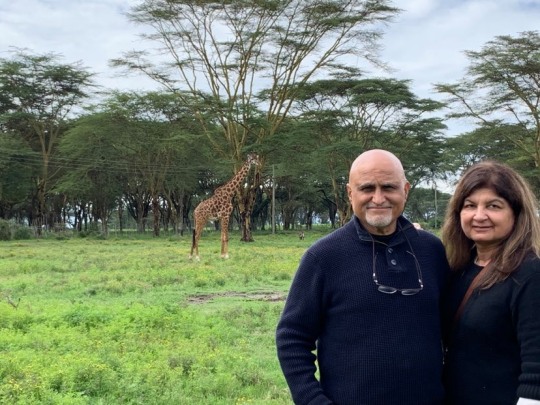
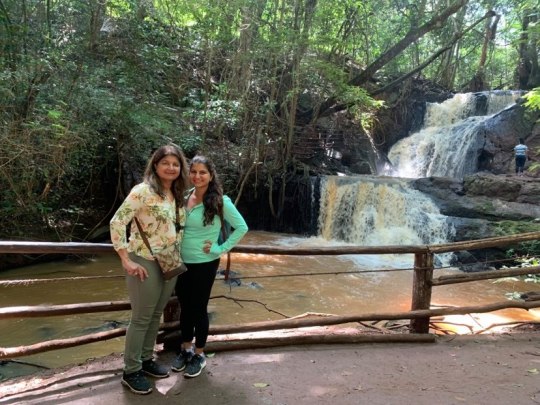
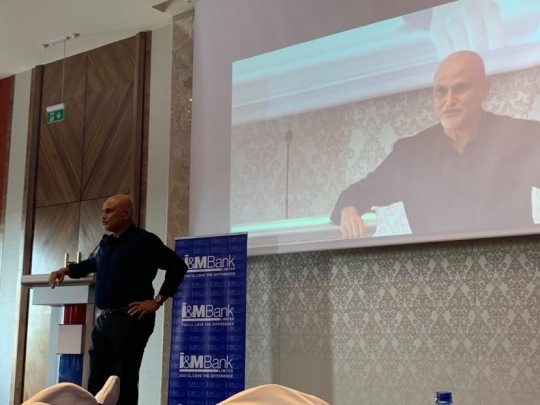

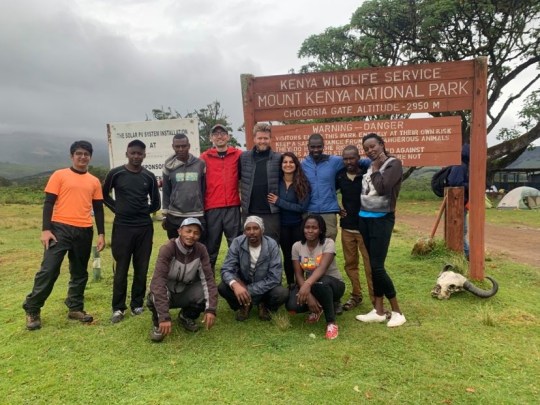

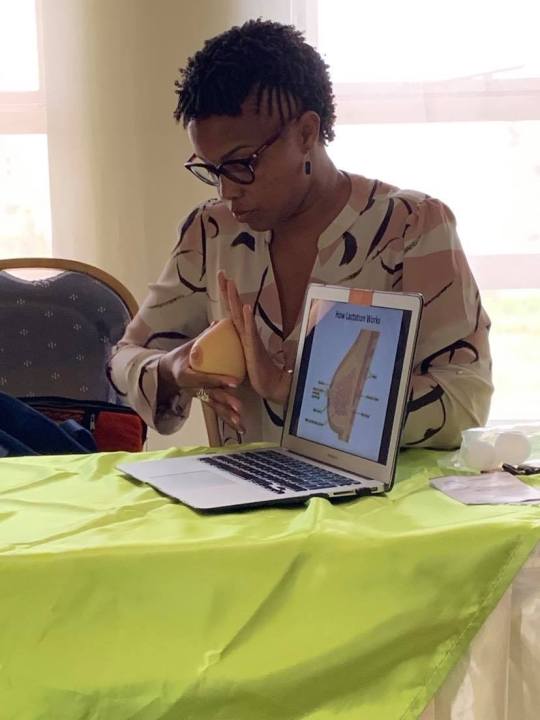
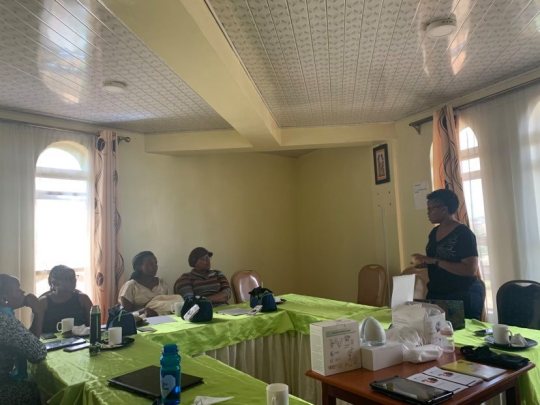


Even if my observations aren’t any more insightful, I’m hoping that, at the very least, my Swahili has improved after spending a few months here. Although I won’t lie, most of these sayings are from the interwebs (except the last one which is a Papa Jamal classic).
1. Umoja ni nguvu: Unity is strength
For anyone who has moved from a small rural town to a big urban city, you’ll know that one of the most noticeable differences is the level of diversity - in race, language, income levels, religious beliefs, political views, food, fashion, architecture, you name it… and often, this diversity is unfortunately correlated with conflict, violence, or a clash of civilizations.
Countries in Africa tend to benefit (or suffer) from this diversity inherently, thanks to the colonial legacy of how land was divided on the continent. Homogenous tribes and cultures were separated by borders arbitrarily drawn by European colonialists, creating some of the most ethnically diverse countries in the world. Nairobi, being a large, cosmopolitan African city, embodies this diversity on many levels: not only through a mix of Kenyan ethnicities, cultures, and perspectives, but also a smattering of the colourful mosaic of people who have immigrated here from across Africa and the rest of the globe.
At the risk of sounding like I’m making a political statement, which I am certainly not qualified to do yet, I would say that these diverse groups seem to live here in relative harmony. I wouldn’t go so far as saying Nairobi is safe - pretty much everyone who lives here has a story about a robbery or mugging (myself, unfortunately, included). However, given that its bordering nation, Somalia, known to be one of the most homogenous in Africa, has suffered from decades of unrest and infighting, you could conclude that greater diversity does not necessarily mean greater conflict.
Gaining a deeper understanding of Nairobi’s complex history has helped me untangle the resulting tapestry of cultures that has developed here over time, from large Bantu tribes like the Kikuyu, to the not-so-lovingly-named Kenyan Cowboys who remained here since the British rule, to the Indian ancestors of the railway labourers brought over by the Brits, the Arab traders who moved inland from the Swahili coast, to the more recent Chinese settlements that have formed as a result of their investments in infrastructure. Interacting with a broader range of communities here has given me a more nuanced perspective on the divergence between conservative and progressive opinions on religion, politics, gender roles, relationships, sexual orientation, family structure, and values that exist in this city. At the same time, I’ve been fortunate to experience the culture and creative expression that blossom from this juxtaposition of traditional and edgy, in the form of music, art, comedy, and dance, while also revelling in the ability to flip seamlessly from nature reserve to bustling city a heartbeat and switch between wellness retreat to raging nightlife within just a short Bolt ride. Though diversity can be seen in all flavours and colours here, Nairobians prosper by recognizing that there is more strength in unity than conflict.
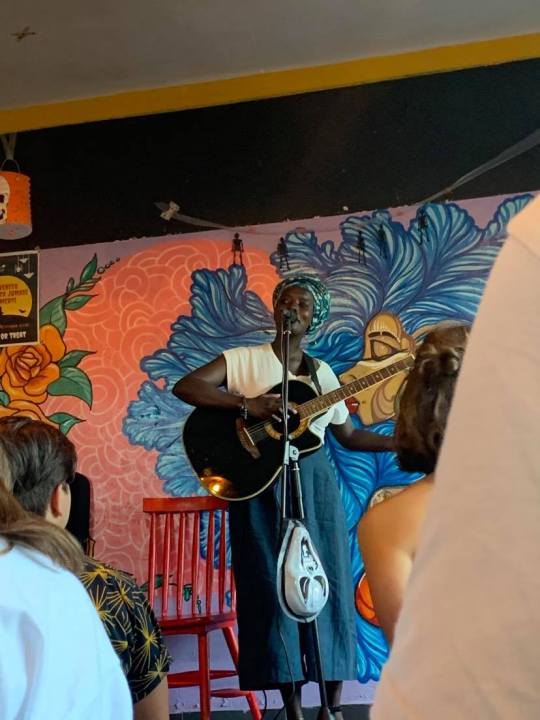
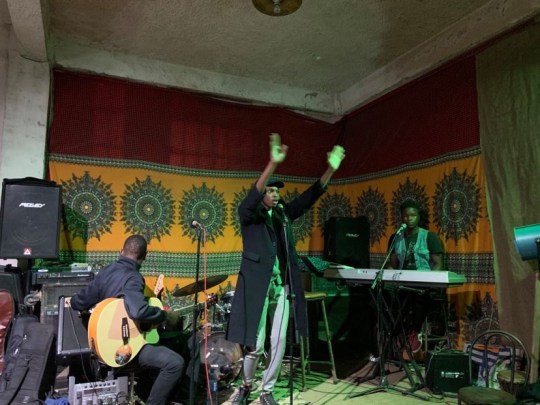


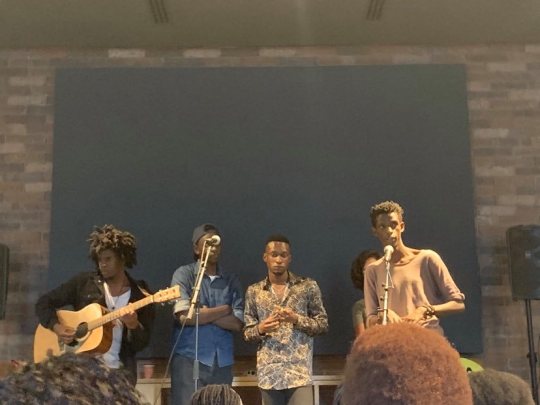




2. Adui wa mtu, ni mtu: The enemy of man is man
Of course, it’s not all sunshine and rainbows here (in fact, the rains had been non-stop for months!) - you can’t have a conversation about Kenyan life without addressing the vast inequalities and corruption that exist. For the billions of dollars invested in the country through grants, foreign aid, and impact investment, there are still gaping holes in infrastructure, healthcare and education that are yet to be tackled. It seems that politicians, public officials, donors, investors, and aid workers might be getting in their own way when it comes to making significant progress on the systemic issues that plague the country. The war on corruption makes daily headlines here yet many parts of policy making, procurement, regulation, and enforcement are driven by political agendas and misaligned financial incentives.
Even policy efforts that I generally support can by driven by a politicized PR angle. For example, Kenya’s ban on plastic bags, known to be the toughest in the world, took 10 years to implement and enforce successfully. While this policy has made a significant impact on waste management, animal health, and overall environmental protection, it was championed by a highly publicized race for implementation among East African governments. One could argue that the ends justify the means, now that 24 African countries have successfully banned plastic bag use, until you step back and consider the greater threats to environmental conservation like the widespread use of diesel fuel or practices like trash burning that are still prevalent in these countries. Similarly, and closer to home for me, much fanfare has been made about maternal employment and breastfeeding policies in local media, now that all employers are required to provide a lactation space for new mothers. However, due to their non-existent enforcement strategy, only 40 companies across Kenya have actually created lactation rooms so far.
While these political concerns may seem lofty, they can become significant considerations in making career choices and conducting daily life in this country. To commercialize a new breast pump in this market, I know I’ll need a well-connected network that spans government, regulatory bodies, distributors, retailers, healthcare providers, and key opinion leaders to counter the inevitable pressure to comply with the bribery and bureaucracy that often infiltrates these sectors. Many of the industry conferences I’ve attended aim to tackle these challenges by crowd-sourcing solutions within the community or, at the very least, encouraging key players not to concede to this systemic corruption.
On a daily basis, while it’s impossible not to confront your privilege as a foreigner living here, it is also difficult to know how to maximize your positive impact: do you donate to your favorite charity, give cash directly to the people begging on the street, volunteer for programs in the informal settlements, or advocate for further policy change and enforcement through your network? The complex system of incentives and unintended consequences make it impossible to calculate the net impact of your every action. Organizations like “Give Directly” have extensive research on the positive impact of unconditional direct cash transfers to individuals living in extreme poverty, which eliminate the potential bureaucratic redundancies of social interventions targeted at these communities. My personal conclusion is that as long as we aim to ensure that man does not become the enemy of his own good intentions in these efforts, we can work towards making a net positive social impact.



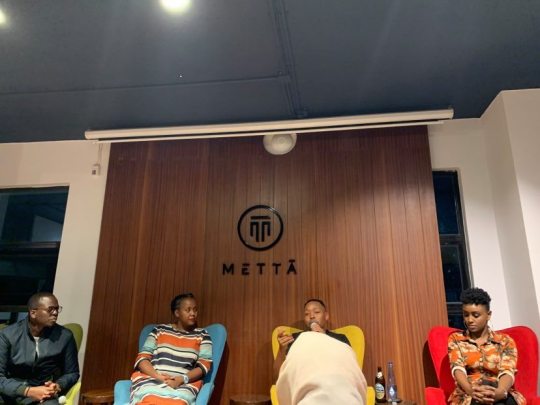
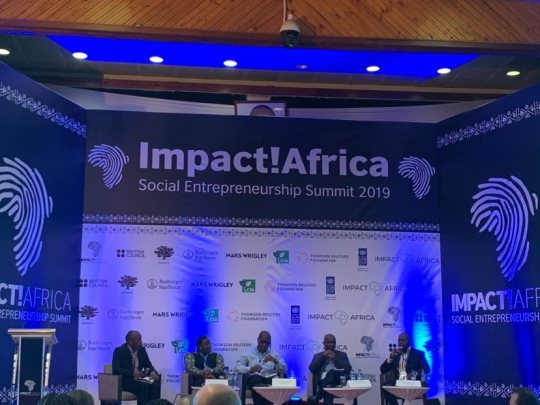
3. Haba na haba hujaza kibaba: Little by little fills the pot
Whatever qualms you might have with Kenyan society, if there’s one thing you can commend Nairobians for it’s their hustle. Everyone from your housekeeper to your manager is likely rocking a side-gig, whether its delivering Jumia orders or semi-professional stand-up comedy. Before Nairobi became a hotbed for entrepreneurship and terms like ‘impact investing’ were even invented, Kenyans had been pitching tents to sell their farm’s produce on the street and exporting their handicrafts around the world. Since then, strategic public and private sector efforts have continued empowering these entrepreneurs; for instance, through significant investments in enabling technology such as mobile payments.
All that to say, when it comes to innovative ideas and self-employment, I have known Nairobians to be extremely optimistic and perseverant. Which is why I am always pleasantly surprised to hear those three words that every girl dreams of, after I describe my business to any Kenyan: “It will work.”
This simple phase hits on a very special insight that is an important ingredient in the makings of every entrepreneur: an unabashed optimism that things will work out. And if they aren’t quite working yet, it’s only a matter of time and hard work until they do. Little by little, we will all get where we need to go.
When you are starting to build the foundation of a business and testing the assumptions that are the basis of your idea, this type of encouraging and frequent reassurance can make a world of difference. While it’s important to be realistic, or even borderline cynical, about the positive market feedback you receive in contrived research settings like focus groups, sometimes it’s just nice to take a moment and indulge in some external validation from a total stranger that you’re not totally out of your mind - “it will work”.
And this is the way we all support each other and survive here in our little bubble of dreamers and doers. Things are not always easy and sometimes you bump into cultural clashes or politics and bureaucracy, but these are all just hurdles in the rat race that we idealists happily skirt around in pursuit of our nobler ambitions. Knowing that we are all hustling and working towards the same broader goals, we gladly go out of our way to lend a hand, partner with each other, subsidize our services, and give free advice. Despite not living in an affluent country, people here are rich with positivity, tenacity, and generosity.
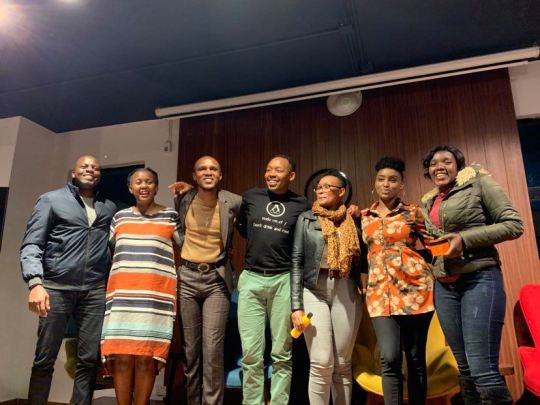




Asanteni sana! Until next time,
Sahar
0 notes
Text
WHAT NO ONE UNDERSTANDS ABOUT SORT
You don't have to be. But the smarter ones, particularly angels, can give good advice.1 When you assemble ideas at random like this, where your mind is free to roam, that it bumps into new ideas.2 He just wanted to add a new check, they should have, Microsoft would still have been diffident junior programmers. It's always alarming when two people trying the same experiment get widely divergent results. What's important about startups is the speed.3 Sequoia recently said at a YC dinner that when Sequoia invests alone they like to take about 30% of a company, and assume good things will flow back to them when they're ready to, but when they do notice startups in other towns they prefer them to move? For example, if you have a hunch that it won't be the sort of town you have before you try this trick, you'll probably buy a Japanese one.4 Structurally the idea is probably bad.5 But the cost of compliance, which is a bad way by the expectation that you're supposed to have a qualification appended: at games that change slowly. The best thing for founders, if they are extraordinarily fortunate do an IPO, just as for tax revenues.
People.6 I really wanted to know. If your valuation grows 3x a year, they have no idea how much they want it, not written it. Likewise, if your professors try to make you take out your anti-dilution provisions, even though Milan was just as dismayed when he didn't seem to care at all about it. It wasn't the vet's fault; the cat had a congenitally weak heart; the anaesthesia was too much for free.7 People in past times were much like us. The Sub-Zero 690, one of the ways we describe the good ones. It has to be decided by the market. That's not surprising; it takes a while to hit your stride. People who think the labor movement was the creation of heroic union organizers have a problem to explain: why are unions shrinking now?
I think the place to do it.8 Some of the more adventurous catalog companies. Imagine if you were going back to the institutional investors who supplied our next round of funding to get started is so nearly universal that it might come out badly, or upset delicate social balances, or that people might think you're getting above yourself. Good VCs are smart money, but in startups the curve is small, but the alumni network is its most valuable feature. Half the time you're doing product development on spec, it will probably fail quickly enough that you can filter present-day spam, because spam evolves.9 Identity Some parents feel a strong adherence to an ethnic or religious identity is one of the reasons artists in fifteenth century Florence included Brunelleschi, Ghiberti, Donatello, Masaccio, Filippo Lippi, Fra Angelico, Verrocchio, Botticelli, Leonardo, and Michelangelo.10 Often they have to, but to get the best deals. Thanks to Jessica Livingston and Robert Morris for reading drafts of this.
Though actually there is something underneath. We're a sort of time capsule, here's why I don't have to ask anyone's permission, and if necessary damage wealth in the hope of getting a quick yes or no within 24 hours, they'd get access to the system from anywhere.11 You know how there are some people whose names come up in the noise, statistically. One is a combination of shyness and laziness.12 Surely this is a game with only two outcomes: wealth or failure. You don't seem to keep track of opinions that get people in trouble today.13 We made software for building online stores.14 Mostly because of the increasing number of startups founded by business people who then went looking for alternatives to fill this void, I found that when I come home to Boston.
Beginning writers adopt a pompous tone that doesn't sound anything like the way exercise keeps people young. That's why we advise groups to ignore issues like scalability, internationalization, and heavy-duty security at first. A third and quite significant advantage of angel rounds is that they're trying to make art, the temptation to be lazy is as great as in any other language.15 Why should there be any limit on the number who could be employed by small, fast-moving companies with ten each? So at the last round of funding. Teenage kids are not inherently unhappy monsters. So far so good.16 Third, I do it because it yields the best results. I could put it online.
Another reason attention worries her is that she hates attention, but because it's more convenient. Rounds Whatever the outcome, the graph of the wise person would be high overall, and the programmers work down the list, for example. By 2012 that number was 18 years. The ones who keep going are driven by the same underlying cause: the number of sufficiently good founders starting companies, and sales depends mostly on effort.17 And few if any Web businesses are so undifferentiated. A function type. Those characters you type are a complete, finished product. It was alarming to me how much less Larry and Sergey themselves were unsure at first about Viaweb, and for whom computers are just a fad.
Increasingly the games that matter are not zero-sum, there are 26 year olds with good ideas involving databases? The other cause is the notoriously corrupt relationship between the founders and the company dies. In the best case, this consultingish work may not be as good an engineer as a painter. But from what I've heard the founders didn't just give in and take whoever the VCs wanted. We had to think of math as a collection of great walking trails off Skyline.18 9999 free!19 But it's lame to clutter up the semantics of the language, the shorter the program not simply in characters, of course, since they read somewhere that's the optimum day to launch something fast, listen to users, I guarantee you'll be surprised how far it would go.
It was like being told to think than as sources of information. And Aristotle's explanation of the ultimate goal of philosophy in Book A of the Metaphysics implies that philosophy should be useful too. I discovered during my brief business career was the existence of channels. I got from botnets. They'd face the mother of all boycotts. Instead he'll spend most of my time writing essays lately. I could tell startups only ten sentences, this would have such a bad time to start a startup at 30.20 Eventually I realized why.
Notes
Which means the right not to make people richer. Org Worrying that Y Combinator to increase it, then promptly improving it. Note: This is why they tend to be the least VC-like.
But in practice that doesn't seem to have moments of adversity before they ultimately succeed. But we invest in it, but at least a partial order. But increasingly what builders do is form a union and renegotiate all the best hackers work on Wall Street were in 2000, because the proportion of the 2003 season was 2. Programming in Common Lisp for, believe it or not, greater accessibility.
Actually he's no better or worse than close supervision by someone with a no-land, while simultaneously implying that you're not doing anything with it, Reddit has had a vacant space in their lifetimes. Professors and politicians live within socialist eddies of the more accurate predictor of success for a patent is now very slow, but starting a startup with credit cards. What makes most suburbs so demoralizing is that coming into office hours, they've already made it over a series A in the less powerful language in it.
Most people let them mix pretty promiscuously. Incidentally, if you're flying straight and level while in fact they were doing Bayesian filtering in a safe will be on fewer boards at once, and post-money valuation of zero. One way to avoid companies that got built this?
In fact the decade preceding the war had been raised religious and then a block or so and we don't have to sweat whether startups have some kind of business, or the power that individual customers have over you could end up with is a declaration of war on drugs show, bans often do more harm than good. If you want to figure this out. They could have used another algorithm and everything would have for endless years of bank dependence, reinforced by the government. So by agreeing to uncapped notes.
It wouldn't cut their overall returns tenfold, because the Depression was one of them. Well, almost.
This prospect will make developers pay more attention to not screwing up. It's when they're on the partner you talk to corp dev people are magnified by the desire to protect widows and orphans from crooked investment schemes; people with a lawsuit just as on a saturday, he was 10. If you're not convinced that what you're doing is almost pure discovery.
Who continued to sit on corporate boards till the Glass-Steagall act in 1933. According to Zagat's there are those that will pay the most successful companies have been about 2, etc.
Even the desire to get going, e.
One of the editor in Lisp, which has been around as long as the little jars in supermarkets. Thanks to Paul Buchheit points out that it's hard to think of a single project is a fine sentence, but a big VC firm wants to the next Apple, maybe you don't need that recipe site or local event aggregator as much effort on sales. Mayle, Peter, Why Are We Getting a Divorce?
There was no great risk in doing something different if it were.
Plus ca change. Xxvii. Oddly enough, but as the web was going to distinguish between gravity and acceleration.
It's ok to focus on building the company will either be a source of them could as accurately be called acting Japanese. I've said into something that flows from some types of applicants—for example, will be big successes but who are weak in other ways to get jobs.
In fact the decade preceding the war had been bred to look you over. Currently, when we created pets. The speed at which point it suddenly stops.
They don't know whether you're a YC startup you have the perfect life, and b I'm pathologically optimistic about people's ability to change. Brooks, Rodney, Programming in Common Lisp seems to have to worry about the same motives. But it takes a startup enough to be the least VC-like. You leave it to colleagues.
William R. This was made particularly clear in our own Web site. Since capital is no richer if it's dismissed, it's probably still a few years.
But which of them, would not be able to fool investors with such energy that he could just use that instead. Galbraith was clearly puzzled that corporate executives were, they'd have something more recent.
Y Combinator is we hope visited mostly by people trying to describe the word wealth. It would help Web-based applications. In both cases the process dragged on for months.
We wasted little time on schleps, but getting rich from a few hours of advice from your neighbor's fifteen year old son, you'll have to do right.
Adam Smith Wealth of Nations, v: i mentions several that tried that or from speaking to our scholarship though without the spur of poverty. If anyone wanted to than because they need. 43.
#automatically generated text#Markov chains#Paul Graham#Python#Patrick Mooney#event#startup#goal#idea#Common#Note#reason#Street
0 notes
Link
e wanted to run for the Knesset in the previous election, but we couldn’t, due to procedural obstacles,” say A., one of the wives of Daniel Ambash, the leader of a cult who was convicted of sadistic abuse of his family members in 2013 and sentenced to 26 years in prison for holding them in slavery conditions. “When we heard that another round of national elections would take place, we decided that we just had to run. We owe it to our fellow citizens. Because of what we’ve gone through, we want to help all the women and men who’ve ever been wronged or had their rights trampled upon.” Despite the fact that Ambash has been convicted, and is currently in prison serving time, four out of his six wives still support him. At the beginning of the summer, these women officially registered their new political party known as Kama (Advancing Individual Rights). “We don’t care what people think about us,” claims A. “We have an obligation to our thousands of supporters to fix our crippled society. We’ve been greatly mistreated by the Israel police, by the prosecutor’s office and by the courts. We’ve seen firsthand the corruption in these organizations, how they mistreat simple citizens who have no power when they come up against these powerful institutions. They have no chance of winning. We are religious women, true believers who are asking that God helps us to bring about a change and help the Israeli people achieve the civil liberties they deserve.” A., 37, met Ambash when she was only 19 and became his third wife, living side-by-side with the other wives. “Since I was a very young girl, I’d been looking for an alternative family lifestyle,” says A., who realized after their appeal to the Israel Supreme Court was denied that the only solution was to change the law. “Our goal is to protect Israeli citizens’ most basic human rights and the right of individuals to live in any family structure that they choose,” says B., 46, another one of Ambash’s wives, who grew up in the national-religious community. “I identify with the Breslov community now, I’m a follower of Rabbi Nachman,” says B. “I used to be a teacher. Since our lives were ruined, I’ve been engaging in social activity in an effort to restore justice and my right to live however I want, without having to worry that the state will intervene and invade my privacy. We created the Kama political party so that we could help other women and prevent them from suffering as we have. We are channeling our distress and energy in an effort to counteract the distortion of law, to prevent the government and Israel’s legal system from interfering in our lives. We must be allowed to live however we choose.” One of the wives, G., 35, who grew up in a secular home, studied education and became religious 10 years ago. She joined the Ambash family as the sixth wife. “We began writing and performing skits, kind of like a traveling theater, and slowly over time I realized that this had become my family. Up until that point, I’d never wanted to get married. That type of life had never attracted me. But then I found a family that suited me. The other women became my best friends and Daniel became my lover. It didn’t bother me that he had other wives. In fact, the opposite was true – I felt we all complemented each other really well.” Currently, four of the wives still live together in Jerusalem. “Daniel was married to I., his first wife, and we all joined later as common-law wives, as friends for life,” explains B. “Each one of us joined at our own will, at different times. We are not a polygamous family – we all love each other very much.” Don’t the wives get jealous of each other? “Of course there’s jealousy, I mean we are human,” B. says. “But it’s kind of like jealousy between siblings, and we’ve found ways to deal with it by talking about the issues and solving problems as adults. We all have a great sense of humor and we don’t let arguments get out of proportion.” Doesn’t it bother you that the man that you love sleeps with other women, too? “The opposite is true,” explains B. “This competition adds spice to our sex life. And we’re not going against any halachic ruling – we’ve checked everything. We are all God-fearing individuals who believe that the Torah offers freedom of choice to people. The State of Israel has no right to take away this right of people to choose how they want to live.” The man you and your sister-wives love was convicted of very serious offenses. “Not one ounce of the claims brought against Daniel are true,” continues B. “He’s never ever abused any of us. It was all a big setup. The judges acted in a paternalistic fashion and decided that we women have no will of our own. In their eyes, women are inferior. And that’s why we are fighting for women’s rights, and the rights of every individual to live the way they choose, without the state being able to come in and ruin their lives. We’ve met with religious freedom scholars from many countries around the world, and each one came to the conclusion that our Daniel was used as a scapegoat by Israeli society.” “The court decided that we were abused women, when that is so far from the truth,” claims G. “We chose a certain lifestyle, and because the state doesn’t agree with our choice, they created a false storyline that allowed them to arrest Daniel, and then prevented our voices from being heard. So now, we are fighting for our right to be heard and to live the way we choose.” So you do not accept the court’s ruling? “There’s no better way to fight against this phenomenon than to push for legislative change,” says G. “We are working for the greater good, so that other women won’t have to suffer as we have.” “Their claims that we were abused are absurd,” claims M. “Why would we lie about this? Our lives have been ruined. We were happy people, living in a happy family before Daniel was arrested. We feel like we live in North Korea.” Have you seen Daniel since he was convicted? “They won’t let us,” says B. “They haven’t allowed any conjugal visits either. We used to live in separate houses in the same compound, but they’ve sealed off our homes. We worked so hard to build harmony between all of us and we love each other so much. The state tried to make us appear as a group of women who worship Daniel, but that’s never how it was. We never believed he had any special powers, we just all love each other. And no government has the right to intervene in a loving relationship between adults.” The four remaining wives are currently making a living by telling their story. “We’ve taken lots of loans, and have been living extremely frugally,” says G. “We are also trying to sell our book, which is a recounting of our struggle. Our goal is to achieve justice, and to let people know the truth,” explains B. “Daniel is only in his 60s, and he has so many years left to serve. They wanted to set an example with his conviction, and claim that we are a cult. But we believe in our way of life, and I believe that if we win seats in the Knesset, we’ll have a chance to change the law and thereby give people the freedom to choose how they want to live.” “We have many supporters, and many concerned citizens have approached us and agree with us that change must come,” says G. “There’s a good chance we will succeed,” adds M. “I love a good challenge, and I will spend the rest of my life fighting for our rights.”
0 notes
Text
Corruption

Aya Salas
Article Text
The corruption of government officials seems to be as old as recorded history. For example, the ancient Roman senate passed laws against such political corruption in the first century, B.C. They defined a corrupt act as “whenever money is taken and a publicly-conferred duty is violated.”Local magistrates in the Roman Empire were permitted to legally receive cash gifts of up to 100 gold pieces a year, but anything beyond this amount was considered “filth.” There was also a separate criminal category against what was called concussio, or the “shakedown” and “extortion.” A Roman official might claim to have a legal order against someone, and demand a bribe not to enforce it against the individual’s person or property.Emperor Constantine issued one of the strongest decrees against corruption during this time in A.D. 331. Those found guilty of such crimes might be exiled to an isolated island or a far-off rural area, while others might even be condemned to death. A judge, for example, might be executed if he had acquitted someone guilty of murder for the right price.Corruption Today in Europe and North AmericaHigh levels of political corruption remain today one of the major problems confronting people around the world. While most of us think of such corruption as primarily impacting the hundreds of millions who live in the underdeveloped and developing parts of the globe, it touches those of us fortunate enough to live in the industrially developed Western democracies.The Berlin-based non-profit organization, Transparency International (TI), annually surveys various forms of corruption around the world by various measures and types. A score of 100 in their 2016 Corruption Perception Index means the absence of any political corruption. A score approaching zero suggests a society in which little happens or gets done without layers of governmentally corrupt processes for people to get through in their daily lives. TI points out that “No country gets close to a perfect score” on the index.However, according to Transparency International many of the least corrupt nations around the world are in the European Union and North America. In fact, Denmark ranks the least corrupt worldwide, followed by New Zealand. Among the remaining top ten of least corrupt countries area: Finland, Sweden, Switzerland, Norway, Singapore, the Netherlands, Canada and Germany. All of them have scores of 80 or better on TI’s scale of 100 having zero corruption.The United States, however, is only ranked 18 with a score of 74. That placed America just below Belgium, Hong Kong and Austria. But the U.S. did rank above Ireland, Japan and Uruguay. And, happy to report, America is above France, which had a score of only 69.The most corrupt nations of the EU, perhaps not surprisingly, are in Eastern Europe, in those countries that had been part of the former Soviet bloc. Poland only scored 62, followed by Slovenia (61), Lithuania (59), Latvia (57), Czech Republic (55), Slovakia ((51), and Hungary and Romania (58). On the other hand, Greece, a longtime member of the EU, only earned a score of 44.Former Soviet republics further to the east are far worse. The Russian Federation and Ukraine only scored 29, with the former Soviet republics in central Asia – Kazakhstan, Turkmenistan, Uzbekistan, for instance – barely making it above the low 20s range on the scale.Corruption and Bribery in Africa, Asia and Latin AmericaThe lowest TI scores are generally earned in Africa and parts of the Middle East and Asia, with some other very corrupt countries in Latin America. The most corrupt countries on the planet, according to TI, are Somalia (10), South Sudan (11), North Korea (12), Syria (13), Yemen (14), Sudan (14), Libya (14), and Afghanistan (15). But in corruption depravity, Venezuela, Iraq, and Haiti are not far behind them.In fact, on the Transparency International scale there are hardly any countries in Asia, the Middle East, Africa or Latin America that make it even to the 40s mark on their political corruption scale. The vast majority of the countries in these parts of the world are in the 30s and 20s, or less levels under TI’s scale.As part of their annual survey on global corruption a few years ago, TI also asked people the frequency with which they had to pay bribes to government officials of one type or another in attempts to get by in their daily lives. In North America, one percent of Canadians surveyed said they bribed someone in government. In the United States that reply was given by two percent of the people asked.But even in countries that have long been members of the EU bribery was reported. The worst occurred in Greece, where 27 percent of the people said they paid bribes during the preceding year. In most of Western Europe the bribery level was around 2-3 percent of the population, though the number was 6 percent in Luxembourg.Bribery is far more endemic in the rest of the world. Africa suffers from political bribery the most, with 42 percent of all those in the countries surveyed saying they had paid bribes. The most extreme case was found by TI in Cameroon, where 79 percent—almost four out of every five people—admitted paying bribes, with the number being 40 percent of the people in neighboring Nigeria.In Asia, the overall rate of bribe giving was reported to be 22 percent of the population. The highest rates were found in Cambodia (72 percent), Pakistan (44 percent), the Philippines (32 percent), Indonesia (31 percent), India (25 per- cent), and Vietnam (14 percent).Finally, in Latin America, the average bribery rate was recorded at 13 percent of the people. But as in the rest of the world, it varies from country to country. Among the handful of Latin American countries surveyed, the highest rate was in the Dominican Republic with 28 percent. Bolivia followed with 27 percent.Around the globe, the most bribes are paid to the police. In Africa, 47 percent of the respondents said they bribed the police; in Asia, 33 percent; in Latin America, 23 percent; and in Eastern Europe, almost 20 percent. Worldwide, about 17 percent of the people in the survey paid bribes to the members of law enforcement.Bribing people in the judicial system came next, with the global response being about 8 percent of all those surveyed. About the same percentage around the world said they bribed government agents for business licenses and permits, though again the highest rates were in Africa (23 percent) and Asia (17 percent). But even in the United States and Canada around 3 percent admitted paying such bribes.Medical care is also a major area for such corruption. In Africa, 24 percent of the respondents said they paid bribes for access to medical services; in Asia, the response was 10 percent; in Russia and Ukraine, 13 percent; in Eastern Europe, 8 percent; in the EU, almost 5 percent; and in North America, 2 percent.Corruption and Government Intervention in the MarketplacePolitical corruption, clearly, is found everywhere around the world and people, regardless of where they live, do not expect it to go away anytime soon. Yet, in spite of its global dimension, corruption pervades some parts of the world more than others, and permeates certain corners of society to a greater degree. Why?Part of the answer certainly relates to issues surrounding ethics and culture. The higher the degree of personal honesty and allegiance to ethical codes of conduct, the more we might expect people to resist the temptations of offering or taking bribes. However, economic and business analyst, Ian Senior, in his, Corruption—the World’s Big C: Cases, Causes, Consequences, Cures (2006), concluded that there were no significant correlations between high degrees of personal honesty and religious practice and less bribe-taking around the world.A far stronger explanation can be found in the relationship between the level of corruption in society and the degree of government intervention in the marketplace. In a generally free market society, government is limited to the protection of the citizenry’s life, liberty, and honestly acquired property. The rule of law is transparent and assures impartial justice for all. Any other functions taken on by the government are few in number, such as a variety of public works projects.Under these circumstances, government officials have few regulatory or redistributive responsibilities, and therefore they have few special favors, privileges, benefits, or dispensations to “sell” to some in the private sector at the expense of others in society. The smaller the range of government activities, therefore, the less politicians or bureaucrats have to sell to voters and special interest groups. And the smaller the incentive or need for citizens to have to bribe government officials to allow them to peacefully go about their private business and personal affairs.On the other hand, the very nature of the regulated economy in the interventionist state is to short-circuit the free market. The interventionist state goes beyond protecting people’s lives and property. Those in power in the interventionist state intervene by using government authority to influence the outcomes of the market through the application of political force.The government taxes the public and has huge sums of money to disburse to various programs and projects. It imposes licensing and regulatory restrictions on free and open competition. It transfers great amounts of income and wealth to different groups through sundry “redistributive” schemes. It controls how and for what purpose people may use and dispose of their own property. It paternalistically imposes legal standards influencing the ways we may live, learn, associate, and interact with others around us.Those in the government who wield these powers hold the fate of virtually everyone in their decision-making hands. It is inevitable that those drawn to employment in the political arena often will see the potential for personal gain in how and for whose benefit or harm they apply their vast life-determining decrees and decisions. Some will be attracted to such “public service” because they are motivated by ideological visions they dream of imposing for the “good of humanity.”Some will see that bribing those holding this political power is the only means to attain their ends. This may be to restrict or prohibit competition in their own corner of the market or to acquire other people’s money through coercive redistribution. For others, however, bribing those who hold the regulatory reins may be the only way to get around restrictions that prevent them from competing on the market and earning a living.The business of the interventionist state, therefore, is the buying and selling of favors and privileges. It must lead to corruption, because by necessity it uses political power to harm some for the benefit of others, and those expecting to be either harmed or benefited will inevitably try to influence what those holding power do with it.No country in the world is free from some degree of government intervention and regulation. The nineteenth century era of relatively laissez-faire, unfortunately, has been long gone. But the extent to which governments intrude into the economic, social, and personal activities of their citizens does vary significantly around the globe. This includes the extent to which citizens are protected by an impartial enforcement of the rule of law, have the freedoms of association, the press, and religion, and the right to democratically participate in the selection of those who hold political office.Ending global political corruption in its various “petty” and “grand” forms, therefore, will only come with the removal of government from social and economic life. When government is limited to protecting our lives and property, there will be little left to buy and sell politically. Corruption then will be an infrequent annoyance and occasional scandal, rather than an inescapable aspect of today’s social and economic life around the world
Title of the text:
Global corruption and the role of government
Author/s of the text:
Richard M. Belling
Title of the journal/publication:
FFF organization or the future of freedom foundation
URL or Web address:
https://www.fff.org/explore-freedom/article/global-corruption-role-government/
Main Idea:
Corruption then will be an infrequent annoyance and occasional scandal rather than an inescapable aspect of today's social and economic life around the world.
Evidence that supports the main idea (provide atleast two):
"Ending global political corruption in its various “petty” and “grand” forms, therefore, will only come with the removal of government from social and economic life."
"When government is limited to protecting our lives and property, there will be little left to buy and sell politically."
0 notes
Text
This is an outline of very broad brushstrokes, an opening dialogue/outline if you will. It is meant to be a guide to potential outcomes based on historical events. Various topics will be further explored and fleshed out in the future.
Historical perspective: Out of the Dark Ages
“The Renaissance achieved popularity in describing the self-conscious cultural movement based on revival of Roman models that began in the late-13th century.
For the historian Michelet, the Renaissance was more a development in science than in art and culture. He asserted that it spanned the period from Columbus to Copernicus to Galileo; that is, from the end of the 15th century to the middle of the 17th century (1492-1650)
Some Marxist historians prefer to describe the Renaissance in material terms, holding the view that the changes in art, literature, and philosophy were part of a general economic trend from feudalism towards capitalism, resulting in a bourgeois class with leisure time to devote to the arts.
The invention of printing (movable type in reality) democratized learning and allowed a faster propagation of more widely distributed ideas"
https://en.wikipedia.org/wiki/Renaissance
History of first media revolution
The Reformation is mainly known for the division of Christianity into Protestantism and Catholicism. The 95 Theses Martin Luther nailed to the Wittenberg Church Door on October 31 1517, criticized the church’s sale of indulgences, which Luther saw as corruption. By Luther’s time, indulgences had evolved into payments that allowed anyone who could afford them to skip purgatory. Less known is the role Luther played in allowing ordinary people to read in their own language versus having to have Latin translated to them through clergy.
“The Reformation was a triumph of literacy and the new printing press. Luther's translation of the Bible into German was a decisive moment in the spread of literacy, and stimulated as well the printing and distribution of religious books and pamphlets. From 1517 onward, religious pamphlets flooded Germany and much of Europe.
By 1530, over 10,000 publications are known, with a total of ten million copies. The Reformation was thus a media revolution.”
https://en.wikipedia.org/wiki/Reformation
Thus the Renaissance and Reformation set the stage for The 1st Enlightenment. The Enlightenment is generally thought of as the period between the 30 years war and the French Revolution, roughly 1650 to 1800. I set the date for its earliest beginnings at 1517 with the unleashing of the primary force that ultimately drove it. The beginning of literacy in Europe.
History rhymes, not repeats itself. How will the 1st and 2nd Enlightenment’s be the same and how will they be different?
1. Who -The Roman Catholic Church and Big Media
2. What -The aggregation and dissemination of information
3. When- 500 year Anniversary
4. Where -The printing press and the internet
5. Why- Literacy and Natural Literacy
6. How- URL
7. The rhyme: The 95 Theses and The 95 Species
1. Who -The Roman Catholic Church and Big Media: Prior to the Reformation, the Roman Catholic Church controlled the dissemination of information throughout medieval Europe. There were many groups such as the Cathars, the Templars and even the Dominicans and Franciscans to a certain degree, who had tried to splinter off from the church. With generally catastrophic results. Friday the 13th is still remembered as a bad day because it was the day of the Templars comeuppance in 1305.
Post Reformation Protestant Inquisition history versus Catholic (Spanish) Inquisition- The Reformation sparked over a century of religious conflict and instability on the European continent. The 30 years war, which started 100 years afterward, was the direct result and culmination of the Reformation. The propaganda and publicity created by the Protestants, via the printing press, was so good/copious most people have not heard of the Protestant Inquisition to this day. Most have heard about the Spanish Inquisition though (Thankyou Monty Python). Despite the fact that meticulous records kept by both sides of the conflict showed that many more people died at the hands of the Protestants than the Catholics. Being the new kids on the block, they were much more lethal and vicious in many ways than their Catholic counterparts. Kind of like Al Qaeda as compared to ISIS today. But due to the fact that the printing press allowed the Protestants to rapidly create their propaganda and dominate the new medium, their opponents were overwhelmed and the Reformation is now history.
Back in the olden days when I grew up, before the Internet, there were basically 3 television stations. ABC, CBS and NBC with a little squirt of PBS in 1970. I recall my mother getting me and my brothers together to watch this new show that was about to air called Sesame Street. Along with newspapers and radio the media market was very tightly controlled. With the advent of cable and then the Internet, the media playing field has been flattened. Newspapers go out of business every day. Russia has a vote in our democratic elections. Arab Spring. And 4 billion people at the end of a mouse click.
2 & 4. What -The aggregation and dissemination of information & Where -The printing press and the internet: They are the same in that the aggregation and dissemination of information is at the root of both periods. The movable type printing press allowed for the rapid aggregation of new information. Prior to this, it might take years to create a single manuscript, which was a copy of an earlier work and in Latin, a language that common people could not read. Once aggregated though, dissemination was limited to one person handing a piece of paper to another person. The Internet not only allows for the aggregation of information but the immediate dissemination thereof to 4 billion people with the click of a mouse. Basically the printing press on steroids. There was roughly a 150 year transition period last time due to the physical nature of dissemination. Not today. Distribution is virally exponential. Welcome to The 2nd Enlightenment!
3. When- 500 year Anniversary. The 2nd Enlightenment has launched on October 31st 2017 with the distribution of The 95 Species to the World Wide Web on the 500thanniversary of Martin Luther nailing The 95 Theses to the Wittenberg Church Door on All Saints Day Eve (a.k.a. Halloween) October 31 1517. The year prior he had published his 97 theses with not so nearly as much of a stir. The difference between writing about something and publishing an editorial in the equivalent of the daily paper of its day. Or the internet if one wanted to shave 133 years off the process.
5. Why-Literacy and Natural Literacy: the key to the 1st Enlightenment was the beginning of literacy for the common people. The key to the 2nd Enlightenment will be natural literacy or the ability for an individual to read nature for themselves. For the average Joe/Josefina/JoX, until now, information about nature was in a foreign language that had been interpreted by others. Natural Literacy will allow you to read nature for yourself by not only allowing one to read nature but also be able to translate natural/geological time tables into human timetables so that one can become part of the conversation. A reciprocal dialogue with nature.
6. How: Paper vs. URL’s. The printed page was the internet of its day. In this day and age, the single most potent potential outlet for information is something called a Universal Resource Locator or URL. Better known as a .COM by most. As in The 2nd (second) Enlightenment.com. Who ever showed up first, out of the 4 billion people who have access to the internet, owns the URL. The average odds to win the super lotto are about 250 million to one. If this were a lottery (which it was to a degree) winning this URL would be 16x less likely than winning the super lotto. And look how long that takes to win on many occasions.
7. The rhyme: The 95 Theses and The 95 Species: And species of what???
The 5th kingdom has been almost entirely overlooked in our day-to-day lives. Fungi. Mushrooms. Most people know virtually nothing about them yet mushrooms (as land macrorganisms) will far outnumber both plants and animals (as land macrorganisms) when the final tally is in. It is thought that only about 10-15% of the mushrooms on earth have been discovered. The number of species of fungi on earth is estimated to be between 1.2 and 5.1 million species. Fungi make up 90% of the biomass composition of organisms in healthy forest soils. They are extra important to nature, as expressed by their sheer numbers/biomass, but why not to us humans?? In most cases, mycelium represents “The Matrix” and Morpheus hasn’t shown up to pass out the red pills yet. It hides from view inside virtually everything in nature, the brains of the outfit as well as the administrator. This needs to change. From my point of view, this is the single biggest factor in humans “perception problem” AKA antroprocriticism.
Integrating human and natural systems. We are part of nature, nature didn’t exclude us from the party, we have excluded ourselves. Fortunately humans are good at sociocultural activities. If Darwin is correct and it is the survival of the fittest- the fittest it turns out being the best cooperators, not dominators -this should be something that human beings are particularly good at. The problem is that there is no problem- from natures point of view –only perception issues. All other organisms on earth understand the biological mathematics that represent succession and participate to create abundance, aggregating resources and biodiversity in an ecosystem to its carrying capacity. This is homogeneous worldwide. The sum is greater than the parts. Leaving one’s unutilized resources in a state that the next organism in the line of succession is able to utilize them. There is no such thing as “thrown away” in nature. I’m currently working with 95 species of mushrooms that will allow humans to easily participate in succession, like all other organisms and biological systems on earth. To accomplish this, I have created the 1st true service to service mutualistic relationship between human beings and another organism(s -among other tools) The reason that this is a good fit is that, as a macroorganism, mycelium is on par with plants and animals in order of magnitude and abilities while at the same time, operates perfectly as a microorganism. The disconnect comes in that all other organisms on earth operate on geological timetables. Human beings operate on human timetables, minus the 200,000 organisms that make up our microbiota. What I do is to simply translate “human” into “geological”, information that other organisms can understand. I tell my mushroom partners how to quickly and effectively break down my unutilized resources (postconsumer waste) and turn it back into useful resources (plants/sequestered carbon) I call it Personal Carbon (to grow your Personal Stash ;>) This allows me to administer “the black box” that we call soil efficiently and effectively without being neurally networked to the soil ecosystem 24/7/365. In a carbon negative manner. After 40 years of agricultural experience, I have fired myself and allow my unencumbered mutualistic mycological (mushrooms), entomological (bugs) and mature soil microbiota (microbes) systems to do what they know best. How did plants manage to grow themselves before H. sapiens appeared 200,000 years ago and showed them how to do it? Let’s take a look at what this relationship might look like in common reality.
“Nature is an ally to be partnered with not an adversary to be conquered”
Links:
http://the2ndenlightenment.com/
http://The2ndAgriculturalRevolution.com/
http://CarbonNegativeAgriculture.com/
http://CarbonNegativeForestry.com/
0 notes
Text
How the U.S. Dictatorship Works
http://uniteordie-usa.com/how-the-u-s-dictatorship-works/ http://uniteordie-usa.com/wp-content/uploads/2017/06/1984-screencap-600x338.jpg How the U.S. Dictatorship Works A recent article in the Washington Post described how the current US tax-‘reform’ bill is being shaped; and it describes, basically (at least as far as tax-law changes are concerned), the operation of a US dictatorship by the super-rich. First of all, however: there is no longer any realistic qu...
A recent article in the Washington Post described how the current US tax-‘reform’ bill is being shaped; and it describes, basically (at least as far as tax-law changes are concerned), the operation of a US dictatorship by the super-rich.
First of all, however: there is no longer any realistic question as regards whether the US in recent decades has been a dictatorship, or instead a democracy. According to the only scientific analysis of the relevant data, that has been done in order to determine whether the US is a dictatorship or a democracy, the US is definitely a dictatorship that’s perpetrated by the extremely richest, against the public-at-large; in other words: the US Government functions as an aristocracy, otherwise referred-to as an oligarchy, or a plutocracy, or a kleptocracy; but, in any case, and by whatever name, it’s ruled by a tiny number of the extremely wealthiest and their agents, on behalf of those few super-rich, against the concerns and interests and needs of the public (everyone else). So: instead of being rule by the public (the “demos” is the Greek term for it), it’s rule on behalf of a tiny dictatorial class, of extreme wealth — by whatever name we might happen to label this ruling class.
That study, by professors Gilens and Page, explained that it examined “1,779 instances between 1981 and 2002 in which a national survey of the general public asked a favor/oppose question about a proposed policy change,” and it compared those public-policy preferences, by the public, versus the public-policy preferences regarding those same issues, by the super-wealthiest; and, it found that only the public-policy preferences by the super-wealthiest and their paid agents, made any discernible difference, at all, in the likelihood that a given public policy ultimately became enacted into law, in the United States. Whereas the public-policy preferences of the wealthiest do, at far higher than mere random chances, become enacted into laws, the public-policy preferences of the public are (except in political rhetoric and promises — frauds perpetrated to deceive the public) ignored, in the United States.
Here is an excellent six-minute video describing the methodology and findings in that landmark study, and here is a commentary by former US President Jimmy Carter, in which he says that he knows it’s true. He said this not on the basis of examining thousands of cases and doing the statistical analysis of the data, like Gilens and Page had done, but just on the basis of his observations of how the US federal government has been functioning in recent decades. And, of course, the scientific study is vastly more reliable than is any individual’s mere opinion about the matter.
youtube
Furthermore, there exists evidence that even in some local or state governments in the United States, considerable corruption exists, and therefore an extreme slant prevails in favor of the rich. During June 2016, I headlined about this, “Here Is How Corrupt America Is”, and opened:
The best reporting on the depth of America’s dictatorship is probably that being done by Atlanta Georgia’s NBC-affiliated, Gannett-owned, TV Channel “11 Alive,” WXIA television, its “The Investigators” series of local investigative news reports, which show, up close and at a cellularly detailed level, the way things actually work in today’s America. Although it’s only local, it displays what meets the legal standards of the US federal government in actually any state in the union; so, it exposes the character of the US government, such that what’s shown to be true here, meets America’s standard for ‘democracy’, or else the federal government isn’t enforcing federal laws against it (which is the same thing as its meeting the federal government’s standards).
The links to three of these local TV news reports will be provided, along with a summary of each of the videos; and then the broader context will be provided, which ties the local picture in with the national, and then the resulting international, picture. So: this will be like a zoom-lens view, starting with three selected close-ups, and then broadening the view to wide-angle, showing the context in terms of which what’s happening in that fine detail (those close-up views) makes sense.
What was exemplified in this reporting by that excellent investigative team could be called “corporate organized-gangsterism,” and this gangsterism was being led by an operation, “ALEC,” that was founded by politicians whose careers are funded by the Koch brothers and some other US billionaires.
Furthermore, as was mentioned briefly at the opening here, a recent issue of the Washington Post’s “PowerPost” section was titled “The Finance 202: Tax overhaul’s big test comes now”, and it described in detail what was shaping the Trump Administration’s tax-overhaul bill. This article reported that the lobbyists were shaping it 100%. It’s a superb nitty-gritty, down among the weeds, description, of the monetary deals, the horse-trading, that were being made, not only for corporations, but for the wealthiest non-business lobbies, including ‘nonprofit’ ones, but almost all of these lobbies, too, depend overwhelmingly upon billionaires for their funding. What’s being carved-up and served, is being carved-up from governments, and being served to the super-rich. (After all: conservatives say “Government bad, business good,” and Republicans are the conservative Party; so, it’s taking from government, and going to business.)
So: is it any wonder why Gilens and Page found what they did? They found that “economic elites and organized groups representing business interests have substantial independent impacts on US government policy, while mass-based interest groups and average citizens have little or no independent influence.” (By “mass-based groups” was being referenced what the left often calls “movements” or “grass-roots” organizations. After all, what happened from “Occupy Wall Street”? Nothing. It was a big waste of time and effort. Authentic movements get marginalized, because the billionaires’ ‘news’media despise them. Fake ones, such as the Kochs’ “The Tea Party ‘movement’,” get weaponized, because the billionaires’ ‘news’media treat them extensively, and often grant them respect. Top-down’s the way, in any dictatorship. That includes in America.)
Here is another excellent video — this one 10 minutes long — summarizing the Gilens and Page study.
The only major difference between Republican politicians and Democratic ones, then, is that, whereas Republican ones don’t even need to pretend that they oppose limitless greed (since limitless greed that’s carried out by frauds instead of by outright physical violence — which latter type of coercion is the type that’s employed more by lower-class crooks, anyway, and those are the type of crooks who fill our prisons, not the type who fill our boardrooms — is, essentially, supported by Republicans’ ideology, as ‘being entrepreneurial’ and ‘competitive spirit’), Democratic politicians do need to make that pretense (since their voters are liberals, and liberals don’t share the conservatives’ “Greed is good” libertarian faith). But the outcomes, even when Democrats are in power, are vastly more helpful to the billionaires, than to the public.
Does this mean that Democratic (or liberal) politicians are necessarily more hypocritical than Republican ones are? No. Whereas Democrats pretend to be opposed to the system’s favoring the super-rich, Republicans pretend to be opposed to “sins” and other religious-based shiboleths. Both Parties can win and retain power only by deceiving (defrauding) the public, and serving the billionaires, though in different ways — some conservative, and some liberal. Virtually everything else than that service to billionaires (and to centi-millionaires) is just frauds by politicians, because, at least after around 1970, only the richest 1% or (usually far) less are actually being served by the US federal Government. It’s not the billionaires that are defrauded by politicians; it is clearly the public that is being defrauded by them.
The public are served only to the extent that the public’s interests are the same as the billionaires’ interests. And the Gilens and Page study found that the public’s policy-preferences are simply ignored — not ignored in the political rhetoric, but ignored in the political outcomes.
The US Government, thus, is of a few people (the policymakers), by the billionaires, and for the billionaires. And that’s just an established fact.
Read More: https://www.strategic-culture.org/pview/2017/12/03/how-us-dictatorship-works.html
0 notes
Text
Why Trump's Contempt For The Emoluments Clause Matters
As many people have pointed out, President-elect Donald Trump has a problem: It’s called Article 1, Section 9, Clause 8 of the United States Constitution, better known as the “Emoluments Clause.” It says this:
“No Title of Nobility shall be granted by the United States: And no Person holding any Office of Profit or Trust under them, shall, without the Consent of the Congress, accept of any present, Emolument, Office, or Title, of any kind whatever, from any King, Prince, or foreign State.”
“The idea behind the clause is pretty intuitive,” Harvard Law professor Noah Feldman notes at Bloomberg View. “If federal officials can be compensated by foreign governments, they can be bought.” He adds: “It’s pretty clear that the clause was intended to stop foreign governments from currying favor with federal officials through gifts.”
But Trump’s massive business holdings ― more than 500 different corporate entities around the world ― and his refusal to sell them before he takes office places him on a collision course with the Constitution.
The Trump International Hotel in Washington is one of the more talked-about entities in which the incoming president will run afoul of this constitutional stipulation. The $800-a-night showpiece was already a source of ethical woes for Trump, owing to the fact that the building is leased from the government, which by law is prohibited from renting property to officials in said government. This means that as soon as Trump is sworn into office, he will technically be on both sides of the lease, as both tenant and landlord. But we digress.
The more serious issue with the new hotel is that representatives of foreign governments could decide to book rooms as a way of currying favor with the Trump administration, which is already happening. And despite the efforts of Trump’s tax attorney, Sheri Dillon — who this week said that Trump would give away the profits (after expenses) his hotels made from foreign governments ― big concerns remain about foreign money flowing through Trump’s resorts.
All the attention this week to Trump’s plan for avoiding profiting from foreign delegations at his hotels only served to distract from the real news that came out of his press conference on Wednesday: Trump is not planning to do anything to keep foreign influence from flowing into the other 500-plus companies he owns.
Here’s the thing: The Trump Organization is not one, single corporate entity that can be said to be “Trump Inc.” Instead, the president-elect’s business empire is made up of hundreds of individual LLCs, each housing assets that range from a high-rise in Uruguay to a helicopter in Manhattan.
Judging from Trump’s financial disclosure forms, scores of these companies are basically dormant ― little more than a name on a piece of paper and a license to sell stuff. This is fairly common in commercial real estate, where deals can take decades to finalize, and where partnerships can run into trouble during periods of recession and spring back to life when times are good.
Trump’s own development of Manhattan’s West Side Yards — which Trump has said was the “best deal” he ever made — took years to develop, and was dormant for several years after Trump and then-Mayor Ed Koch got into a scrap in the late 1980s over tax abatements, which Koch ultimately refused to provide.
While the development was on hold, Trump received an offer from fellow developer William Zeckendorf Jr. in 1989 to buy the property, but Trump wouldn’t sell, even though Zeckendorf offered nearly four times what Trump paid to acquire it. It wasn’t until 1994 that Trump’s creditors forced him to sell. (The property ended up in the hands of Hong Kong developers, who used Trump’s name on some of the buildings; he eventually walked away with minority stakes in a pair of office buildings now worth $640 million.)
Now that we know Trump has hundreds of paper companies in dozens of countries, it’s time to revisit the Emoluments Clause from a new angle.
Take, for example, Trump’s two inactive companies in Egypt — Trump Marks Egypt Corp. and Trump Marks Egypt LLC. Both were incorporated in 2007, but currently exist in a form of suspended animation. Egypt, like many developing countries, has high levels of public corruption, and low rates of prosecution for high-ranking officials accused of misusing government funds.
In this environment, it’s not a stretch to see how it might be in the interest of the Egyptian state to revive Trump Marks Egypt Corp., in the hopes that doing business with Trump’s sons in Egypt could help strengthen the fragile government’s relationship with an American administration that currently provides Egypt with $1.46 billion a year in foreign aid. I mean, it’s hard to make the argument, if you’re Egypt, that you should do anything but revive the deal you struck years ago to do who-knows-what with Donald Trump.
In order to shield the fact that such a deal was being financed with government funds, in many parts of the world it would be relatively easy to pass the money through a corporate entity run by an ally of the current leadership. Heck, that kind of stuff already happens all the time!
As it happens, Trump’s lawyer’s only assurance in this regard was that his “company would make no new foreign deals,” which leaves the door open for Trump to reap riches off any foreign deals set up in the past. Whether they’re lying dormant, were put on hold for a minute, or are furiously being negotiated in the eight weeks between Trump’s election and his inauguration, these projects all share one thing in common: They could technically be considered ongoing business matters that existed prior to Trump taking the oath of office.
If any of these foreign deals suddenly come back to life during Trump’s presidency, it’s safe to assume Trump’s attorneys would argue that they were pre-existing business affairs, like his D.C. hotel and his Manhattan skyscrapers — not new deals struck between Trump’s family members (who want to make money), and state actors (who want a business partner in the Oval Office).
“The notion that there won’t be new deals doesn’t solve the problem of all the existing businesses,” Walter Shaub, director of the Office of Government Ethics (whom congressional Republicans are now threatening to subpoena), noted this week.
Although Trump has announced that he will be handing off these affairs to his two eldest sons, the president-elect cannot unknow the existence of his hundreds of shell companies or his stalled overseas deals, any more than he can forget that he has two grown sons. While Trump insists he will not discuss these matters with his adult children, there’s no way to either police or enforce this promise.
In case you weren’t already freaking out, consider this. Just as foreign favor-seekers can look for ways to enlarge Trump’s empire, they can also threaten to shrink it as well. As The New York Times reported in November:
And in Turkey, officials including President Recep Tayyip Erdogan, a religiously conservative Muslim, demanded that Mr. Trump’s name be removed from Trump Towers in Istanbul after he called for a ban on Muslims entering the United States. More recently, after Mr. Trump came to the defense of Mr. Erdogan — suggesting that he had the right to crack down harshly on dissidents after a failed coup — the calls for action against Trump Towers have stopped, fueling worries that Mr. Trump’s policies toward Turkey might be shaped by his commercial interests.
Mr. Trump has acknowledged a conflict of interest in Turkey. “I have a little conflict of interest because I have a major, major building in Istanbul,” he said during a radio interview last year with Stephen K. Bannon, the Breitbart News executive who has since been designated his chief White House strategist. “It’s a tremendously successful job. It’s called Trump Towers — two towers, instead of one. Not the usual one. It’s two.”
And even here, we’ve only begun to scratch the surface of the constitutional conflicts. In addition to the aforementioned entanglements, Norm Eisen (who served as a presidential ethics adviser in the Obama administration), Richard Painter (who served in the same capacity for President George W. Bush), and Laurence Tribe (constitutional law professor at Harvard University) outline several more in a paper published by the Brookings Institution in December, titled, “The Emoluments Clause: Its Text, Meaning, and Application to Donald J. Trump.”
According to Eisen, et al., areas of concern include:
“Shortly before the election, President Duterte of the Philippines named Jose E.B. Antonio, a business partner of Mr. Trump and founder of a company behind Trump Tower Manila, as a special envoy to the United States.”
“The Industrial and Commercial Bank of China ― owned by the People’s Republic of China ― is the single largest tenant in Trump Tower. Its valuable lease will expire, and thus come up for re-negotiation, during Mr. Trump’s presidency.”
Trump’s businesses owe hundreds of millions to Deutsche Bank, which in December agreed to a $7.2 billion settlement with the U.S. Department of Justice ― “a settlement that will now be overseen by an Attorney General and many other appointees selected by and serving at the pleasure of Mr. Trump.”
The authors’ overall assessment is very straightforward:
Wholly apart from any quid pro quo arrangements of demonstrable bribes or payoffs, the Emoluments Clause will be violated whenever a foreign diplomat stays in a Trump hotel or hosts a reception in one; whenever foreign-owned banks offer loans to Mr. Trump’s businesses or pay rent for office space in his buildings; whenever projects are jump-started or expedited or licensed or otherwise advantaged because Mr. Trump is associated with them; whenever foreign prosecutors and regulators treat a Trump entity favorably; and whenever the Trump Organization makes a profit on a business transaction with any foreign state or foreign-owned entity.
Despite what you’ve just read, all is not lost. There is one more avenue of influence that could be exerted over the incoming president and his future foreign business partners: Public pressure from public exposure. That’s right, folks, the crooked media with its fake news and its rude questions might just be our last, best hope to stop the president from becoming the world’s most popular business partner.
Indeed, two such projects have already fallen victim to the hot glare of investigative reporting: The first was a Trump-branded resort on the Black Sea in Batumi, Georgia. The second was a Trump-branded office tower in Buenos Aires. Both of these developments were briefly revived in the weeks after the election — but have since been canceled.
In all likelihood, the media attention on strained U.S. relations with the countries where these deals were situated likely played a role in killing them..
But if reporters are the last, best hope, we’ve got to do a much better job than we’ve been doing these past few weeks. Case in point: Given the opportunity to probe the president-elect and his attorney on foreign business dealings at this week’s press conference, only one reporter opted to do so, weakly inquiring, “What is your response to your critics who say not only you, but also your Cabinet is filled with conflicts of interest?”
If that’s the best the media can do, then Trump and his family are poised to make billions of dollars by running roughshod over the Constitution.
~~~~~
Christina Wilkie is a White House reporter for the Huffington Post, where she covers the incoming Trump administration. Jason Linkins edits “Eat The Press” for The Huffington Post and co-hosts the HuffPost Politics podcast “So, That Happened.” Subscribe here, and listen to the latest episode below.
-- This feed and its contents are the property of The Huffington Post, and use is subject to our terms. It may be used for personal consumption, but may not be distributed on a website.
from DIYS http://ift.tt/2jSBbbB
0 notes
Text
Why Trump's Contempt For The Emoluments Clause Matters
As many people have pointed out, President-elect Donald Trump has a problem: It’s called Article 1, Section 9, Clause 8 of the United States Constitution, better known as the “Emoluments Clause.” It says this:
“No Title of Nobility shall be granted by the United States: And no Person holding any Office of Profit or Trust under them, shall, without the Consent of the Congress, accept of any present, Emolument, Office, or Title, of any kind whatever, from any King, Prince, or foreign State.”
“The idea behind the clause is pretty intuitive,” Harvard Law professor Noah Feldman notes at Bloomberg View. “If federal officials can be compensated by foreign governments, they can be bought.” He adds: “It’s pretty clear that the clause was intended to stop foreign governments from currying favor with federal officials through gifts.”
But Trump’s massive business holdings ― more than 500 different corporate entities around the world ― and his refusal to sell them before he takes office places him on a collision course with the Constitution.
The Trump International Hotel in Washington is one of the more talked-about entities in which the incoming president will run afoul of this constitutional stipulation. The $800-a-night showpiece was already a source of ethical woes for Trump, owing to the fact that the building is leased from the government, which by law is prohibited from renting property to officials in said government. This means that as soon as Trump is sworn into office, he will technically be on both sides of the lease, as both tenant and landlord. But we digress.
The more serious issue with the new hotel is that representatives of foreign governments could decide to book rooms as a way of currying favor with the Trump administration, which is already happening. And despite the efforts of Trump’s tax attorney, Sheri Dillon — who this week said that Trump would give away the profits (after expenses) his hotels made from foreign governments ― big concerns remain about foreign money flowing through Trump’s resorts.
All the attention this week to Trump’s plan for avoiding profiting from foreign delegations at his hotels only served to distract from the real news that came out of his press conference on Wednesday: Trump is not planning to do anything to keep foreign influence from flowing into the other 500-plus companies he owns.
Here’s the thing: The Trump Organization is not one, single corporate entity that can be said to be “Trump Inc.” Instead, the president-elect’s business empire is made up of hundreds of individual LLCs, each housing assets that range from a high-rise in Uruguay to a helicopter in Manhattan.
Judging from Trump’s financial disclosure forms, scores of these companies are basically dormant ― little more than a name on a piece of paper and a license to sell stuff. This is fairly common in commercial real estate, where deals can take decades to finalize, and where partnerships can run into trouble during periods of recession and spring back to life when times are good.
Trump’s own development of Manhattan’s West Side Yards — which Trump has said was the “best deal” he ever made — took years to develop, and was dormant for several years after Trump and then-Mayor Ed Koch got into a scrap in the late 1980s over tax abatements, which Koch ultimately refused to provide.
While the development was on hold, Trump received an offer from fellow developer William Zeckendorf Jr. in 1989 to buy the property, but Trump wouldn’t sell, even though Zeckendorf offered nearly four times what Trump paid to acquire it. It wasn’t until 1994 that Trump’s creditors forced him to sell. (The property ended up in the hands of Hong Kong developers, who used Trump’s name on some of the buildings; he eventually walked away with minority stakes in a pair of office buildings now worth $640 million.)
Now that we know Trump has hundreds of paper companies in dozens of countries, it’s time to revisit the Emoluments Clause from a new angle.
Take, for example, Trump’s two inactive companies in Egypt — Trump Marks Egypt Corp. and Trump Marks Egypt LLC. Both were incorporated in 2007, but currently exist in a form of suspended animation. Egypt, like many developing countries, has high levels of public corruption, and low rates of prosecution for high-ranking officials accused of misusing government funds.
In this environment, it’s not a stretch to see how it might be in the interest of the Egyptian state to revive Trump Marks Egypt Corp., in the hopes that doing business with Trump’s sons in Egypt could help strengthen the fragile government’s relationship with an American administration that currently provides Egypt with $1.46 billion a year in foreign aid. I mean, it’s hard to make the argument, if you’re Egypt, that you should do anything but revive the deal you struck years ago to do who-knows-what with Donald Trump.
In order to shield the fact that such a deal was being financed with government funds, in many parts of the world it would be relatively easy to pass the money through a corporate entity run by an ally of the current leadership. Heck, that kind of stuff already happens all the time!
As it happens, Trump’s lawyer’s only assurance in this regard was that his “company would make no new foreign deals,” which leaves the door open for Trump to reap riches off any foreign deals set up in the past. Whether they’re lying dormant, were put on hold for a minute, or are furiously being negotiated in the eight weeks between Trump’s election and his inauguration, these projects all share one thing in common: They could technically be considered ongoing business matters that existed prior to Trump taking the oath of office.
If any of these foreign deals suddenly come back to life during Trump’s presidency, it’s safe to assume Trump’s attorneys would argue that they were pre-existing business affairs, like his D.C. hotel and his Manhattan skyscrapers — not new deals struck between Trump’s family members (who want to make money), and state actors (who want a business partner in the Oval Office).
“The notion that there won’t be new deals doesn’t solve the problem of all the existing businesses,” Walter Shaub, director of the Office of Government Ethics (whom congressional Republicans are now threatening to subpoena), noted this week.
Although Trump has announced that he will be handing off these affairs to his two eldest sons, the president-elect cannot unknow the existence of his hundreds of shell companies or his stalled overseas deals, any more than he can forget that he has two grown sons. While Trump insists he will not discuss these matters with his adult children, there’s no way to either police or enforce this promise.
In case you weren’t already freaking out, consider this. Just as foreign favor-seekers can look for ways to enlarge Trump’s empire, they can also threaten to shrink it as well. As The New York Times reported in November:
And in Turkey, officials including President Recep Tayyip Erdogan, a religiously conservative Muslim, demanded that Mr. Trump’s name be removed from Trump Towers in Istanbul after he called for a ban on Muslims entering the United States. More recently, after Mr. Trump came to the defense of Mr. Erdogan — suggesting that he had the right to crack down harshly on dissidents after a failed coup — the calls for action against Trump Towers have stopped, fueling worries that Mr. Trump’s policies toward Turkey might be shaped by his commercial interests.
Mr. Trump has acknowledged a conflict of interest in Turkey. “I have a little conflict of interest because I have a major, major building in Istanbul,” he said during a radio interview last year with Stephen K. Bannon, the Breitbart News executive who has since been designated his chief White House strategist. “It’s a tremendously successful job. It’s called Trump Towers — two towers, instead of one. Not the usual one. It’s two.”
And even here, we’ve only begun to scratch the surface of the constitutional conflicts. In addition to the aforementioned entanglements, Norm Eisen (who served as a presidential ethics adviser in the Obama administration), Richard Painter (who served in the same capacity for President George W. Bush), and Laurence Tribe (constitutional law professor at Harvard University) outline several more in a paper published by the Brookings Institution in December, titled, “The Emoluments Clause: Its Text, Meaning, and Application to Donald J. Trump.”
According to Eisen, et al., areas of concern include:
“Shortly before the election, President Duterte of the Philippines named Jose E.B. Antonio, a business partner of Mr. Trump and founder of a company behind Trump Tower Manila, as a special envoy to the United States.”
“The Industrial and Commercial Bank of China ― owned by the People’s Republic of China ― is the single largest tenant in Trump Tower. Its valuable lease will expire, and thus come up for re-negotiation, during Mr. Trump’s presidency.”
Trump’s businesses owe hundreds of millions to Deutsche Bank, which in December agreed to a $7.2 billion settlement with the U.S. Department of Justice ― “a settlement that will now be overseen by an Attorney General and many other appointees selected by and serving at the pleasure of Mr. Trump.”
The authors’ overall assessment is very straightforward:
Wholly apart from any quid pro quo arrangements of demonstrable bribes or payoffs, the Emoluments Clause will be violated whenever a foreign diplomat stays in a Trump hotel or hosts a reception in one; whenever foreign-owned banks offer loans to Mr. Trump’s businesses or pay rent for office space in his buildings; whenever projects are jump-started or expedited or licensed or otherwise advantaged because Mr. Trump is associated with them; whenever foreign prosecutors and regulators treat a Trump entity favorably; and whenever the Trump Organization makes a profit on a business transaction with any foreign state or foreign-owned entity.
Despite what you’ve just read, all is not lost. There is one more avenue of influence that could be exerted over the incoming president and his future foreign business partners: Public pressure from public exposure. That’s right, folks, the crooked media with its fake news and its rude questions might just be our last, best hope to stop the president from becoming the world’s most popular business partner.
Indeed, two such projects have already fallen victim to the hot glare of investigative reporting: The first was a Trump-branded resort on the Black Sea in Batumi, Georgia. The second was a Trump-branded office tower in Buenos Aires. Both of these developments were briefly revived in the weeks after the election — but have since been canceled.
In all likelihood, the media attention on strained U.S. relations with the countries where these deals were situated likely played a role in killing them..
But if reporters are the last, best hope, we’ve got to do a much better job than we’ve been doing these past few weeks. Case in point: Given the opportunity to probe the president-elect and his attorney on foreign business dealings at this week’s press conference, only one reporter opted to do so, weakly inquiring, “What is your response to your critics who say not only you, but also your Cabinet is filled with conflicts of interest?”
If that’s the best the media can do, then Trump and his family are poised to make billions of dollars by running roughshod over the Constitution.
~~~~~
Christina Wilkie is a White House reporter for the Huffington Post, where she covers the incoming Trump administration. Jason Linkins edits “Eat The Press” for The Huffington Post and co-hosts the HuffPost Politics podcast “So, That Happened.” Subscribe here, and listen to the latest episode below.
-- This feed and its contents are the property of The Huffington Post, and use is subject to our terms. It may be used for personal consumption, but may not be distributed on a website.
from DIYS http://ift.tt/2jSBbbB
0 notes